| |
Date |
Event(s) |
| 1 | 1499 | - 16 Nov 1499—16 Nov 1499: Perkin Warbeck, pretender to the throne, executed
|
| 2 | 1503 | - 1503—1503: Leonardo da Vinci paints Mona Lisa (-1505)
- 28 May 1503—28 May 1503: Marriage of King James IV of Scots and Margaret Tudor
|
| 3 | 1505 | - 1505—1505: Royal College of Surgeons founded in Edinburgh
|
| 4 | 1506 | - 22 Jan 1506—22 Jan 1506: First contingent of 150 Swiss Guards arrives at the Vatican
|
| 5 | 1507 | - 1507—1507: First printing press in Scotland set up in Edinburgh by Andrew Myllar
- Apr 1507—Apr 1507: Suggestion put forward that the New World be named America in honour of
Amerigo Vespucci (on Martin Waldseem?ller's world map)
|
| 6 | 1509 | - 1509—1509: Naturalisation papers start in England
- 22 Apr 1509—22 Apr 1509: Henry VIII becomes king of England (to 1547) at 17 years old
- 11 Jun 1509—11 Jun 1509: Henry VIII marries Catherine of Aragon
|
| 7 | 1512 | - 1512—1512: The Auld Alliance' treaty with France - all Scottish citizens became French and vice
versa
- 1512—1512: Admiralty founded in London
- Nov 1512—Nov 1512: Ceiling of the Sistine Chapel, painted by Michelangelo, exhibited to the public for
the first time
|
| 8 | 1513 | - 16 Aug 1513—16 Aug 1513: Battle of the Spurs - English troops under Henry VIII defeat a French force at
Guinegate
- 9 Sep 1513—9 Sep 1513: Battle of Flodden, defeat of Scottish Army - death of King James IV of Scots
|
| 9 | 1514 | - 1514—1514: Recording of Testaments (wills) begins in Scotland
|
| 10 | 1515 | - 15 Nov 1515—15 Nov 1515: Thomas Wolsley invested as Cardinal
|
| 11 | 1516 | - 1516—1516: Thomas More writes Utopia'
|
| 12 | 1517 | - 31 Oct 1517—31 Oct 1517: Martin Luther fixes his 95 theses on church door at Wittenburg - regarded as
start of the Reformation
|
| 13 | 1518 | - 1518—1518: Treaty of London, a non-aggression pact between the major European nations: France,
England, Holy Roman Empire, the Papacy, Spain, Burgundy and the Netherlands - sponsored
by Cardinal Wolsey
|
| 14 | 1520 | - Nov 1520—Nov 1520: Three ships under the command of Ferdinand Magellan negotiate the Strait of
Magellan, becoming the first Europeans to sail from the Atlantic Ocean to the Pacific
|
| 15 | 1521 | - 17 Apr 1521—17 Apr 1521: Martin Luther speaks to the assembly at the Diet of Worms, refusing to recant
his teachings
- 17 May 1521—17 May 1521: Edward Stafford, 3rd Duke of Buckingham, executed for treason
- 25 May 1521—25 May 1521: Diet of Worms ends when Charles V, Holy Roman Emperor issues the Edict of
Worms, declaring Martin Luther an outlaw
|
| 16 | 1522 | - 6 Sep 1522—6 Sep 1522: The Victoria, one of the surviving ships of Ferdinand Magellan's expedition,
becomes the first ship known to circumnavigate the world
|
| 17 | 1525 | - 1525—1525: New Testament translated into English by William Tyndale
|
| 18 | 1527 | - 1527—1527: Bishop Vesey's Grammar School founded in Sutton Coldfield
|
| 19 | 1528 | - 1528—1528: St George's Chapel in Windsor Castle completed
|
| 20 | 1531 | - 11 Feb 1531—11 Feb 1531: Henry VIII recognised as Supreme Head of the Church of England
|
| 21 | 1532 | - 1532—1532: Foundation of the Court of Session in Scotland
|
| 22 | 1533 | - 25 Jan 1533—25 Jan 1533: Henry VIII marries Anne Boleyn secretly, wife #2 (she was crowned as Queen
on 1st June)
- 30 Mar 1533—30 Mar 1533: Thomas Cranmer becomes Archbishop of Canterbury
- 23 May 1533—23 May 1533: Henry VIII's marriage with Catherine of Aragon officially declared annulled
- 11 Jul 1533—11 Jul 1533: Henry VIII excommunicated by Pope Clement VII
- 17 Sep 1533—17 Sep 1533: Anne Boleyn gives birth to a daughter Elizabeth, to become Queen Elizabeth I
|
| 23 | 1534 | - 1534—1534: Reformation of the Catholic Church in England church (Henry VIII)
|
| 24 | 1535 | - 1535—1535: Sir Thomas More executed
|
| 25 | 1536 | - 1536—1536: Wales and England legally united by the Laws in Wales Act of 1535
- 1536—1536: Dissolution of monasteries starts in England (to 1540)
- 19 May 1536—19 May 1536: Anne Boleyn executed
- 30 May 1536—30 May 1536: Henry VIII marries Jane Seymour, wife #3 (she was crowned as Queen on 29th
October)
- 18 Jul 1536—18 Jul 1536: The authority of the Pope is declared void in England
|
| 26 | 1537 | - 24 Oct 1537—24 Oct 1537: Jane Seymour dies from complications in giving birth to a son, the future
Edward VI
|
| 27 | 1538 | - 1538—1538: Henry VIII issues English Bible
- 1538—1538: English and Welsh parish registers start
- 17 Dec 1538—17 Dec 1538: Henry VIII excommunicated by Pope Paul III
|
| 28 | 1540 | - 1540—1540: Statute of Wills allows freehold land to be bequeathed
- 6 Jan 1540—6 Jan 1540: Henry VIII marries Anne of Cleves, the 'Flanders Mare', wife #4
- 9 Feb 1540—9 Feb 1540: First recorded horse racing event in Britain, at Chester
- 9 Jul 1540—9 Jul 1540: Henry VIII divorces Anne of Cleves
- 28 Jul 1540—28 Jul 1540: Thomas Cromwell executed; Henry VIII marries Catherine Howard the same day,
wife #5
|
| 29 | 1541 | - 1541—1541: Henry VIII proclaimed king (rather than feudal lord) of Ireland
|
| 30 | 1542 | - 13 Feb 1542—13 Feb 1542: Catherine Howard executed
- 14 Dec 1542—14 Dec 1542: Death of King James V of Scots; his baby daughter Mary ?Queen of Scots'
succeeds him just 6 days old
|
| 31 | 1543 | - 12 Jul 1543—12 Jul 1543: Henry VIII marries Catherine Parr, wife #6, who survives him
- 9 Sep 1543—9 Sep 1543: Mary Stuart, at nine months old, is officially crowned Queen of Scots' in
Stirling (spelling of the royal house changes from Stewart to Stuart)
|
| 32 | 1544 | - 1544—1544: Henry's VIII's Rough Wooing' of the Scottish Borders
- 1544—1544: Mary of Guise, Regent of Scotland
|
| 33 | 1545 | - 20 Jul 1545—20 Jul 1545: Mary Rose, flagship of Henry VIII, sinks in the Solent - raised in 1982
|
| 34 | 1546 | - 1546—1546: Trinity College, Cambridge founded by Henry VIII
|
| 35 | 1547 | - 1547—1547: Ivan the Terrible takes title 'Tsar of all the Russias'
- 1547—1547: Vagrants Act passed (able-bodied tramps can be detained as slaves)
- 1547—1547: English replaced Latin in church services in England and Wales
- 28 Jan 1547—28 Jan 1547: Death of Henry VIII (succeeded by Edward VI, aged 9, to 1553)
- 20 Feb 1547—20 Feb 1547: Coronation of Edward VI in Westminster Abbey
- 10 Sep 1547—10 Sep 1547: Battle of Pinkie Cleugh, said to be the first 'modern' battle to be fought in the
British Isles
|
| 36 | 1548 | - 1548—1548: Priests in England allowed to marry (about a third then did so) - but see 1554
|
| 37 | 1549 | - 1549—1549: English Parliament declares enclosures legal
- 1549—1549: First Act of Uniformity in England made Catholic Mass illegal
- 1549—1549: Wedding ring finger changed from right to left hand
- 9 Jun 1549—9 Jun 1549: First Book of Common Prayer sanctioned by English Parliament
|
| 38 | 1550 | - 1550—1550: Walloon Protestants arrive as refugees from the Low Countries
|
| 39 | 1551 | - 1551—1551: Scotland: General Provincial Council orders each parish to keep a register of baptisms
and banns of marriage
|
| 40 | 1552 | - Mar 1552—Mar 1552: An 'Act of Uniformity' imposes the Protestant prayerbook of 1552 in England
|
| 41 | 1553 | - 6 Jul 1553—6 Jul 1553: Edward VI dies; Lady Jane Grey queen for a few days only
- 19 Jul 1553—19 Jul 1553: Mary Tudor ('Bloody Mary') comes to the throne
|
| 42 | 1554 | - 1554—1554: Brief Catholic restoration under Queen Mary Tudor - married priests forced to separate
at least 30 miles from their wives
- 12 Feb 1554—12 Feb 1554: Lady Jane Grey beheaded
|
| 43 | 1556 | - 21 Mar 1556—21 Mar 1556: Archbishop of Canterbury, Thomas Cranmer burned at the stake in Oxford
|
| 44 | 1558 | - 1558—1558: System of Counties adopted
- 1558—1558: Scottish parish registers start
- 7 Jan 1558—7 Jan 1558: French take Calais, last English possession in France
- 24 Apr 1558—24 Apr 1558: Marriage of Mary, Queen of Scots to Fran?ois the Dauphin of France in Paris
- 17 Nov 1558—17 Nov 1558: Queen Mary Tudor of England dies and is succeeded by her half-sister
Elizabeth - Protestantism restored in England
|
| 45 | 1559 | - 1559—1559: Tobacco introduced to Europe
- 1559—1559: John Knox returns from Continent - strengthens case for Presbyterianism in Scotland
- 15 Jan 1559—15 Jan 1559: Elizabeth crowned in Westminster Abbey by Owen Oglethorpe, the Bishop of
Carlisle
- 29 Apr 1559—29 Apr 1559: Acts of Supremacy passed in Parliament, ending papal jurisdiction over England
& Wales; established Church of England
|
| 46 | 1560 | - 1560—1560: Establishment of Protestantism in Scotland - commissary courts thrown into confusion
- some records lost
- 27 Feb 1560—27 Feb 1560: Treaty of Berwick between Duc du Chatelherault (as governor of Scotland) and
the English, agreeing to act jointly to expel the French from Scotland
|
| 47 | 1561 | - 1561—1561: Spire of St Paul's, highest in England, destroyed by fire
- 1561—1561: The first coins produced by machinery (known as a 'mill') rather than by hand, but it
was a slow process and did not replace hand struck coinage until new machinery was
introduced in 1663
|
| 48 | 1562 | - 1562—1562: Earliest English slave-trading expedition, under John Hawkins - between Guinea and
the West Indies
|
| 49 | 1563 | - 28 Jul 1563—28 Jul 1563: The English surrender Le Havre to the French after a siege
|
| 50 | 1564 | - 26 Apr 1564—26 Apr 1564: Shakespeare baptised - he is said to have been born on Apr 23, St George's
Day; he certainly died on Apr 23, 1616
|
| 51 | 1565 | - 29 Jul 1565—29 Jul 1565: Marriage of Mary, Queen of Scots to Henry Stuart, Lord Darnley, her first
cousin
|
| 52 | 1566 | - 9 Mar 1566—9 Mar 1566: Murder of David Riccio (or Rizzio) in Holyrood House
|
| 53 | 1567 | - 10 Feb 1567—10 Feb 1567: Murder of Darnley outside Holyrood House in an explosion
- 15 May 1567—15 May 1567: Marriage of Mary Queen of Scots to James Hepburn, 4th Earl of Bothwell
- 24 Jul 1567—24 Jul 1567: Mary Queen of Scots deposed and replaced by her 1 year old son James VI
|
| 54 | 1568 | - 13 May 1568—13 May 1568: Battle of Langside - Mary's flight to England and her imprisonment by Queen
Elizabeth I
|
| 55 | 1569 | - 1569—1569: Elizabeth I approved Sunday sports
|
| 56 | 1570 | - 25 Feb 1570—25 Feb 1570: Pope Pius V issued the papal bull 'Regnans in Excelsis' to excommunicate
Elizabeth I and her followers in the Church of England
|
| 57 | 1571 | - 1571—1571: Presbyterianism introduced into England by Thomas Cartwright
- 1571—1571: Repeal of Act prohibiting lending of money on interest - gradual change from
'subsistence economy' to 'cash economy' resulted
- 1571—1571: Beginning of penal legislation against Catholics in England
- 23 Jan 1571—23 Jan 1571: Opening of the Royal Exchange in London, founded by Sir Thomas Gresham -
this building destroyed in Great Fire of London 1666
|
| 58 | 1577 | - 1577—1577: James Burbage opens first theatre in London
|
| 59 | 1579 | - 1579—1579: Act of Uniformity in matters of religion enforced
|
| 60 | 1580 | - 1580—1580: Congregational movement founded by Robert Browne about this time
- 1580—1580: Colonisation of Ireland
- 6 Apr 1580—6 Apr 1580: Dover Straits earthquake, largest in the recorded history of England, mentioned
by Shakespeare - dozens of ships sunk and a tsunami hit Calais
|
| 61 | 1581 | - 1581—1581: English Levant Company founded
- 16 Jan 1581—16 Jan 1581: English Parliament outlaws Roman Catholicism
- 4 Apr 1581—4 Apr 1581: Francis Drake knighted by Elizabeth I aboard the Golden Hind after
circumnavigating the world
|
| 62 | 1583 | - 1583—1583: University of Edinburgh founded
- 1583—1583: Foundation of Cambridge University Press by Thomas Thomas
- Aug 1583—Aug 1583: Sir Humphrey Gilbert attempts to establish English authority at St John's,
Newfoundland
|
| 63 | 1584 | - 4 Jun 1584—4 Jun 1584: Sir Walter Raleigh establishes first English colony in the New World, on
Roanoke Island, Virginia (now in North Carolina) - the so-called 'Lost Colony'
|
| 64 | 1585 | - 1585—1585: Foundation of Oxford University Press
|
| 65 | 1587 | - 1587—1587: Introduction of potatoes to England
- 8 Feb 1587—8 Feb 1587: Execution of Mary, Queen of Scots, at Fotheringay Castle, near Peterborough
- 19 Apr 1587—19 Apr 1587: Sir Francis Drake sinks the Spanish fleet in Cadiz harbour
- 11 Aug 1587—11 Aug 1587: Raleigh's second expedition to New World lands in North Carolina - first child
born in the New World of English parents was Virginia Dare (Aug 18)
|
| 66 | 1588 | - 1588—1588: Invention of shorthand by Dr Timothy Bright
- 19 Jul 1588—19 Jul 1588: Spanish Armada sighted off the Lizard (had set sail from Lisbon in late May)
- 29 Jul 1588—29 Jul 1588: Defeat of Spanish Armada off Gravelines
|
| 67 | 1591 | - 1591—1591: Trinity College, Dublin, founded
|
| 68 | 1592 | - 1592—1592: A Congregational (or Independent) Church formed in London
- 1592—1592: Scotland: Presbyterian Church formally established - all ministers equal - no bishops -
secular commissaries appointed by the Crown
|
| 69 | 1593 | - 1593—1593: British statute mile established by law
|
| 70 | 1594 | - 1594—1594: Hugh O'Neill, Earl of Tyrone, leads Irish rebellion against English rule (-1603)
|
| 71 | 1597 | - 1597—1597: Poor Law Act for erection of parish workhouses for the Poor - Poor Rate collection
allowed
|
| 72 | 1598 | - 1598—1598: Bishop's transcripts of English and Welsh parish registers start - parish records were to
be kept in 'great decent books of parchment' and copies or 'Bishop's Transcripts' of new entries
were to be sent each month to the diocesan centre
|
| 73 | 1600 | - 1 Jan 1600—1 Jan 1600: Scotland adopts New Year beginning 1st January (previously 25th March)
- 31 Dec 1600—31 Dec 1600: British East India Company founded
|
| 74 | 1601 | - 1601—1601: Great English Poor Law Act passed
- 1601—1601: First use of fruit juice as a preventative for scurvy by James Lancaster
|
| 75 | 1602 | - 20 Mar 1602—20 Mar 1602: Dutch East India Company founded
- 8 Nov 1602—8 Nov 1602: Bodleian Library at Oxford University opened to the public
|
| 76 | 1603 | - 24 Mar 1603—24 Mar 1603: Death of Elizabeth I: union of Scottish and English crowns - under King James
VI of Scots and I of England (d. 1625)
- 25 Jul 1603—25 Jul 1603: Coronation - James VI of Scotland is crowned first king of Great Britain
|
| 77 | 1604 | - 1 Nov 1604—1 Nov 1604: Shakespeare: Othello' first presented
|
| 78 | 1605 | - 5 Nov 1605—5 Nov 1605: Gunpowder plot at Westminster (Guy Fawkes, etc)
|
| 79 | 1606 | - 1606—1606: The London Company chartered to colonise Virginia: the Susan Constant, Godspeed,
and Discovery leave England on 19th De c taking 144 days to reach America
- 1606—1606: Episcopacy established in Scotland (against wishes of the Scots)
- 31 Jan 1606—31 Jan 1606: Guy Fawkes and co-conspirators executed
- 12 Mar 1606—12 Mar 1606: Adoption of Union Flag as the flag of Great Britain' (the term Union Jack is
used officially only when the Union Flag is flown from the Jack Mast of a Royal Naval vessel)
|
| 80 | 1607 | - 14 May 1607—14 May 1607: Jamestown, Virginia settled - to become the first permanent British colony in
North America
|
| 81 | 1608 | - 1608—1608: First use of telescope by Galileo - he observed the moons of Jupiter two years later in
Jan 1610
|
| 82 | 1610 | - 1610—1610: James VI & I established the Episcopal Church in Scotland - Prebyterians persecuted
and many of their records lost
|
| 83 | 1611 | - 1611—1611: Authorised (King James) Version of Bible in Britain
- 22 May 1611—22 May 1611: James VI & I created the title of baronet
|
| 84 | 1613 | - 1613—1613: A copper farthing was produced, as a silver coin would be too small
- 29 Jun 1613—29 Jun 1613: The Globe Theatre in London burns during a performance of Henry the Eighth
(finally pulled down in 1644)
|
| 85 | 1616 | - 23 Apr 1616—23 Apr 1616: Tuesday Apr 23 (Julian calendar): Death of Shakespeare
|
| 86 | 1618 | - 1618—1618: Sir Walter Raleigh beheaded for allegedly conspiring against James I
|
| 87 | 1619 | - 4 Dec 1619—4 Dec 1619: (Nov 24 old style): Colonists from Berkeley Parish in England disembark in
Virginia and give thanks to God (considered by many to be the first Thanksgiving in the
Americas)
|
| 88 | 1620 | - 1620—1620: Manufacture of coke (the fuel, not the drink!) patented by Dud Dudley
- 21 Dec 1620—21 Dec 1620: (Dec 16 old style): The Mayflower reaches America - founds Plymouth, New
England (had initially set sail from Southampton on Aug 5)
|
| 89 | 1621 | - 1621—1621: Chimneys to be made of brick and to be four and a half feet above the roof
|
| 90 | 1622 | - 1622—1622: First English newspaper appeared - Weekly News'
|
| 91 | 1624 | - 1624—1624: Monopoly Act in England: patents protected
- 1624—1624: Edmund Gunter introduces the surveyor's chain (measurement of length)
|
| 92 | 1625 | - 1625—1625: The size of bricks standardised in England around this time
- 27 Mar 1625—27 Mar 1625: Death of King James VI & I
|
| 93 | 1628 | - 1 Mar 1628—1 Mar 1628: Writs issued by Charles I that every county in England (not just seaport towns)
pay ship tax by this date
|
| 94 | 1629 | - 10 Mar 1629—10 Mar 1629: Parliament dissolved by King Charles I - did not meet for another 11 yea
|
| 95 | 1633 | - Jun 1633—Jun 1633: Galileo summoned by Inquisition for publishing in favour of Copernican theory
|
| 96 | 1635 | - 1635—1635: Letter Office of England & Scotland started
- 1635—1635: Flintlock small arms invented around this time (replaces matchlock)
|
| 97 | 1636 | - 1636—1636: Hackney Carriages in use by now in London
|
| 98 | 1638 | - 1638—1638: King Charles regarded protests against the prayerbook as treason - forced Scots to choose
between their church and the King - a ?Covenant' swearing to resist these changes to the
Death was signed in Greyfriars Church Edinburgh and was accepted by hundreds of
thousands of Scots (revival of Presbyterian Church)
|
| 99 | 1639 | - 1639—1639: Act of Toleration in England established religious toleration
|
| 100 | 1640 | - 3 Nov 1640—3 Nov 1640: Charles I forced to recall Parliament (the 'Long Parliament') due to Scottish
invasion
|
| 101 | 1641 | - 1641—1641: Charles I's policies cause insurrection in Ulster and Civil War in England
- 1641—1641: Charles I and the English Parliament acknowledge the Prebyterian Church in Scotland
- 23 Oct 1641—23 Oct 1641: 50,000 Irish killed in an uprising in Ulster
|
| 102 | 1642 | - 1642—1642: The Civil War interrupted the keeping of parish registers
- 1642—1642: English theatres closed by Puritans (till 1660)
- 22 Aug 1642—22 Aug 1642: Charles I raises his standard at Nottingham - First Civil War in England (to
1649)
- 13 Nov 1642—13 Nov 1642: Battle of Turnham Green - Royalist forces withdraw in face of the
Parliamentarian army and fail to take London
- 24 Nov 1642—24 Nov 1642: Abel Janszoon Tasman discovers Van Diemen's Land (now Tasmania)
- 18 Dec 1642—18 Dec 1642: Abel Janszoon Tasman first European to set foot in New Zealand
|
| 103 | 1643 | - 13 Dec 1643—13 Dec 1643: Battle of Alton - victory for Parliamentarians - Sir Richard Bolle killed in St
Lawrence's church
|
| 104 | 1644 | - 29 Jun 1644—29 Jun 1644: Battle of Cropredy Bridge - Royalists beat the Parliamentarian forces
- 2 Jul 1644—2 Jul 1644: Battle of Marston Moor, near York - Parliamentarian forces beat the Royalists
|
| 105 | 1645 | - 1645—1645: Battle of Philiphaugh in Scotland
- 1645—1645: Scotland: Each county and burgh ordered to raise and maintain a number of foot
soldiers, according to population, to serve as militia - population of Scotland estimated at
420,000
- 1645—1645: Plague made its last appearance in Scotland
- 14 Jun 1645—14 Jun 1645: Battle of Naseby: Parliament's New Model Army crushes the Royalist forces
|
| 106 | 1646 | - 5 May 1646—5 May 1646: Charles I surrenders to the Scottish Army at Newark
- 20 Jun 1646—20 Jun 1646: Royalists sign articles of surrender at Oxford
|
| 107 | 1648 | - 1648—1648: Society of Friends (Quakers) founded by George Fox
- 1648—1648: First practical thermometers made
|
| 108 | 1649 | - 1649—1649: Cromwell's Irish campaign starts
- 1649—1649: King Charles II proclaimed King of Scots and England in Scotland
- 6 Jan 1649—6 Jan 1649: 'Rump' Parliament votes to put Charles I on trial
- 30 Jan 1649—30 Jan 1649: King Charles I executed
- 19 May 1649—19 May 1649: Commonwealth declared
- 20 Dec 1649—20 Dec 1649: Theatres banned by Cromwell
- 20 Dec 1649—20 Dec 1649: Christmas banned by Cromwell
|
| 109 | 1650 | - 1650—1650: Coffee brought to England about this time
|
| 110 | 1651 | - 1651—1651: The second English Civil War (1651-1652)
- 1651—1651: Scottish prisoners transported to the British settlements in America
- 3 Sep 1651—3 Sep 1651: Battle of Worcester
|
| 111 | 1653 | - 1653—1653: Commonwealth registers start
- 1653—1653: Under the Act of Settlement Cromwell's opponents stripped of land
- 1653—1653: Provincial probate courts abolished - probates granted only in London
- 20 Apr 1653—20 Apr 1653: Cromwell dissolves the Rump Parliament
- 16 Dec 1653—16 Dec 1653: Oliver Cromwell becomes Lord Protector of the Commonwealth of England,
Scotland and Ireland
|
| 112 | 1657 | - 1657—1657: Post Office established by Act of Parliament [others say 1660]
- 1657—1657: A few Jews permitted to settle in England
|
| 113 | 1658 | - 1658—1658: Richard Cromwell (son of Oliver) Lord Protector (-1660)
- 3 Sep 1658—3 Sep 1658: Death of Oliver Cromwell
|
| 114 | 1659 | - 1659—1659: Start of national meteorological Temperature records in the UK
- 6 Feb 1659—6 Feb 1659: Date of first known bank cheque to be drawn
|
| 115 | 1660 | - 1660—1660: Commonwealth registers ended, Parish Registers resumed
- 1660—1660: Provincial Probate Courts re-established
- 1660—1660: Clarendon code restricts Puritans' religious freedom
- 1660—1660: Composition of light discovered by Newton
- 1660—1660: Honourable East India Company founded by British
- 1 Jan 1660—1 Jan 1660: Samuel Pepys starts his diary
- 29 May 1660—29 May 1660: Restoration of British monarchy (Charles II) - 'Oak Apple Day' - theatres
reopened
- 17 Oct 1660—17 Oct 1660: Ten Regicides are executed at Charing Cross or Tyburn
- 28 Nov 1660—28 Nov 1660: Twelve men, including Christopher Wren, Robert Boyle, John Wilkins, and Sir
Robert Moray decide to found what is later known as the Royal Society
- 8 Dec 1660—8 Dec 1660: First actress plays in London (Margaret Hughes as Desdemona)
|
| 116 | 1661 | - 1661—1661: Restoration of Episcopacy in Scotland
- 1661—1661: Board of Trade founded in London
- 1661—1661: Hand-struck postage stamps first used
- 1661—1661: Corporation Act prevents non-Anglicans from holding municipal office
- 30 Jan 1661—30 Jan 1661: Oliver Cromwell formally 'executed', having been dead for over two years!
|
| 117 | 1662 | - 1662—1662: 'Hearth Tax' introduced - until 1689 (1690 in Scotland)
- 1662—1662: Poor Relief Act or Act of Settlement' - gave JPs the power to return any wandering
poor to the parish of origin (repealed 1834)
- 1662—1662: Tea introduced to Britain
- 24 Aug 1662—24 Aug 1662: Act of Uniformity - Acceptance of Book of Common Prayer required - About
2,000 vicars and rectors driven from their parishes as nonconformists (Presbyterians and
Independents) - Persecution of all non-conformists - Presbyterianism dis-established -
Episcopalian Church of England restored
|
| 118 | 1664 | - 29 May 1664—29 May 1664: Oak Apple Day - the birthday of Charles II and the day when he entered
London at the Restoration; commanded by Act of Parliament in 1664 to be observed as a day
of thanksgiving. A special service (expunged in 1859) was inserted in the Book of Common
Prayer and people wore sprigs of oak with gilded oak-apples on that day.
- 27 Aug 1664—27 Aug 1664: Nieuw Amsterdam becomes New York as 300 English soldiers under Col.
Mathias Nicolls take the town from the Dutch under orders from Charles II. The town is
renamed after the King's brother James, Duke of York
|
| 119 | 1665 | - 1665—1665: Great Plague of London (July-October) kills over 60,000
- 1665—1665: Five-mile Act restricts non-conformist ministers in Britain
- 7 Nov 1665—7 Nov 1665: The ?London Gazette' first published - one of the official journals of record of the
United Kingdom government and the oldest continuously published newspaper in the
United Kingdom
|
| 120 | 1666 | - 1666—1666: Use of semaphore signalling pioneered by Lord Worcester
- 1666—1666: Newton formulated Laws of Gravity
- 2 Sep 1666—2 Sep 1666: Great Fire of London, after a drought beginning 27 June (2-6 Sep)
|
| 121 | 1668 | - 1668—1668: British East India Company obtains control of Bombay
- 1668—1668: Newton constructs reflecting telescope
|
| 122 | 1669 | - 31 May 1669—31 May 1669: Last entry in Pepys's diary
|
| 123 | 1670 | - 26 May 1670—26 May 1670: King Charles II and King Louis XIV of France sign the Secret Treaty of Dover
|
| 124 | 1671 | - 9 May 1671—9 May 1671: Thomas Blood caught stealing the Crown Jewels
|
| 125 | 1672 | - 1672—1672: High Court of Justiciary established in Scotland
- 1672—1672: War with Holland (to 1674) - British Army increased to 10,000 men
|
| 126 | 1673 | - 1673—1673: First Test Act deprives British Catholics and Non-conformists of Public Office
|
| 127 | 1674 | - 10 Nov 1674—10 Nov 1674: Treaty of Westminster - Netherlands cedes New Netherlands (on the eastern
coast of North America) to Britain
|
| 128 | 1675 | - 1675—1675: Beginning of Whig party under Shaftsbury
- 1675—1675: Rebuilding of St Paul's started by Wren (completed 1710)
- 4 Mar 1675—4 Mar 1675: John Flamsteed appointed first Astronomer Royal of England
- 10 Aug 1675—10 Aug 1675: Building of Royal Greenwich Observatory started
|
| 129 | 1676 | - 1676—1676: Compton Census, named after its initiator Henry Compton, Bishop of London, was
intended to discover the number of Anglican conformists, Roman Catholic recusants and
Protestant dissenters in England and Wales from enquiries made in individual parishes
|
| 130 | 1677 | - 1677—1677: Lee's Collection of Names of Merchants in London' published
|
| 131 | 1678 | - 1678—1678: Extension of Test Act to peers
|
| 132 | 1679 | - 1679—1679: Tories first so named
- 27 May 1679—27 May 1679: Habeas Corpus Act becomes law in England - (later repealed from time to
time)
|
| 133 | 1680 | - 1680—1680: William Dockwra(y) begins his London Penny Post
- 1680—1680: Dodo becomes extinct in Mauritius through over-hunting
|
| 134 | 1681 | - 1681—1681: Second Test Act (against non-conformists) passed by Westminster Parliament
- 1681—1681: Oil lighting first used in London streets
|
| 135 | 1682 | - 1682—1682: Pennsylvania founded by William Penn
- 1682—1682: Library of Advocates founded in Edinburgh - later National Library of Scotland
- 1682—1682: Halley observes the comet which bears his name
|
| 136 | 1683 | - 1683—1683: Wild boar become extinct in Britain
- 6 Jun 1683—6 Jun 1683: Ashmolean Museum opened at Oxford - first museum in Britain
|
| 137 | 1685 | - 1685—1685: James the Second (1685-1689, died 1701) - Monmouth rebellion and battle of
Sedgemoor - British Army raised to 20,000 men
- 1685—1685: Earl of Argyll's Invasion of Scotland
- 1685—1685: Judge Jeffreys and the Bloody Assizes - 320 executed, 800 transported
|
| 138 | 1686 | - 1686—1686: Release of all prisoners held for their religious beliefs
|
| 139 | 1687 | - 4 Apr 1687—4 Apr 1687: James II issues the Declaration of Indulgence, suspending laws against Catholics
and non-conformists
- 5 Jul 1687—5 Jul 1687: Newton published his Philosophiae Naturalis Principia Mathematica' - written
in Latin
|
| 140 | 1688 | - 1688—1688: British Army raised to 40,000
- 1688—1688: Bill of Rights limits the powers of the monarchy over parliament
- 1688—1688: Hearth Tax abolished
- 1688—1688: Mutiny Act
- Feb 1688—Feb 1688: Edward Lloyd's Coffee House opens - later became Lloyd's of London
- Nov 1688—Nov 1688: The Glorious Revolution: James II abdicates
- 5 Nov 1688—5 Nov 1688: William of Orange lands at Torbay
- Dec 1688—Dec 1688: Siege of Londonderry (began Dec 1688; ended 28 Jul 1689)
|
| 141 | 1689 | - 1689—1689: Devonport naval dockyard established
- 13 Feb 1689—13 Feb 1689: William III and Mary II, daughter of James II, jointly take the throne (only William, however, has regal power)
- 12 Mar 1689—12 Mar 1689: Deposed James VII & II flees to Ireland - defeated at the Battle of the Boyne (1
Jul 1690)
- 24 May 1689—24 May 1689: Toleration Act passed for Protestant non-conformists
- 27 Jul 1689—27 Jul 1689: Battle of Killiecrankie in Scotland - Jacobites defeated Government troops but
at high cost
- 16 Dec 1689—16 Dec 1689: Bill of Rights passed by Parliament, ending King's divine right to raise taxes or
wage war
|
| 142 | 1690 | - 20 May 1690—20 May 1690: England passes Act of Grace, forgiving Roman Catholic followers of James II
|
| 143 | 1692 | - 1692—1692: Land Tax introduced - originally designed as an annual tax on personal estate, public
offices and land. For practical purposes, however, assessors tended to avoid assessing items of
wealth other than landed property so that it became known as the Land Tax.
- 1692—1692: French intention to invade England came to nothing
- 13 Feb 1692—13 Feb 1692: The massacre of Glencoe - Clan Campbell sides with King William and
murders members of Clan McDonald
|
| 144 | 1693 | - 4 Aug 1693—4 Aug 1693: Date traditionally ascribed to Dom Pierre P?rignon 's invention of Champagne
|
| 145 | 1694 | - 1694—1694: National Debt came into effect in England
- 1694—1694: Stamp Duties introduced into Britain from Holland
- 1694—1694: Mary II death leaves William III as sole ruler
- 1694—1694: Triennial Act, new Parliamentary elections every three years
- 1694—1694: Scotland: Poll Tax imposed on all over sixteen, except the destitute and insane (-1699)
- 27 Jul 1694—27 Jul 1694: Bank of England founded by William Paterson (a Scot)
|
| 146 | 1695 | - 1695—1695: Freedom of Press in England granted
- 1695—1695: Bank of Scotland founded
- 1695—1695: Act of Parliament imposes a fine on all who fail to inform the parish minister of the
birth of a child (repealed 1706)
- 1695—1695: Start of Dissenters' lists in parish registers - children born but not christened in the
parish church - some were named 'Papist' and others 'Protestants'
|
| 147 | 1697 | - 2 Dec 1697—2 Dec 1697: Official opening of St Paul's Cathedral
|
| 148 | 1698 | - 1698—1698: Invention of steam engine by Capt Thomas Savery
- 1698—1698: Darien Expedition: a disastrous attempt to establish a Scots settlement in Panama
- 1698—1698: Duties (taxes) on entries in parish registers - repealed after five years
- 4 Jan 1698—4 Jan 1698: Most of the Palace of Whitehall in London destroyed by fire
- 14 Nov 1698—14 Nov 1698: Eddystone Lighthouse (Henry Winstanley's) first lit; completed 10 days earlier
|
| 149 | 1700 | - 1700—1700: Population in England and Scotland approx 7.5 million
|
| 150 | 1701 | - 1701—1701: Act of Settlement bars Catholics from the British throne
- 23 May 1701—23 May 1701: After being convicted of piracy and murdering William Moore, Captain
William Kidd hanged in London
|
| 151 | 1702 | - 8 Mar 1702—8 Mar 1702: Anne Stuart becomes Queen
- 11 Mar 1702—11 Mar 1702: First English daily newspaper The Daily Courant (till 1735)
|
| 152 | 1703 | - 4 Aug 1703—4 Aug 1703: British take Gibraltar
- 24 Nov 1703—24 Nov 1703: Climate: Most violent storms of the millennium cause vast damage
across southern England - about a third of Britain's merchant fleet lost, and Eddystone
lighthouse destroyed on 27 November (Nov 24 - Dec 2)
|
| 153 | 1704 | - 1704—1704: Penal Code enacted - Catholics barred from voting, education and the military
- 13 Aug 1704—13 Aug 1704: Battle of Blenheim
|
| 154 | 1705 | - 1705—1705: First workable steam pumping engine devised by Thomas Newcomen (some say c1710
or 1711)
- 1705—1705: Isaac Newton knighted (for his work at the Royal Mint)
|
| 155 | 1706 | - 1706—1706: First evening newspaper The Evening Post' issued in London
|
| 156 | 1707 | - 16 Jan 1707—16 Jan 1707: Union with Scotland - Scots agree to send 16 peers and 45 MPs to English
Parliament in return for full trading privileges - Scottish Parliament meets for the last time in
March
- 1 May 1707—1 May 1707: English and Scottish Parliaments united by an Act of the English Parliament -
The Kingdom of Great Britain established - largest free-trade area in Europe at the time
|
| 157 | 1708 | - 1708—1708: First Jacobite rising in Scotland
- 1708—1708: Earliest Artillery Muster Rolls
|
| 158 | 1709 | - 1709—1709: Second Eddystone lighthouse completed
- 1709—1709: First Copyright Act pass
- 1709—1709: Bad harvests throughout Europe - bread riots in Britain
- 2 Feb 1709—2 Feb 1709: Alexander Selkirk rescued from shipwreck on a desert island, inspiring the book
Robinson Crusoe (published in 1719) by Daniel Defoe
|
| 159 | 1710 | - 1710—1710: Tax on Apprentice Indentures introduced
|
| 160 | 1711 | - 1711—1711: Incorporation of South Sea Company, in London
- 11 Aug 1711—11 Aug 1711: First race meeting at Ascot
|
| 161 | 1712 | - 1712—1712: Imposition of Soap Tax (abolished 1853)
- 1712—1712: Last trial for witchcraft in England (Jane Wenham)
- 1712—1712: Toleration Act passed - first relief to non-Anglicans
|
| 162 | 1713 | - 1713—1713: By this year there are some 3,000 coffee houses in London
|
| 163 | 1714 | - 1714—1714: Longitude Act: prize of ?20,000 offered to the inventor of a workable method of
determining a ship's longitude (won by John Harrison in 1773 for his chronometer).
- 1714—1714: Schism Act, prevents Dissenters from being schoolmasters in England
- 1714—1714: Landholders forced to take the Oath of Allegiance and renounce Roman Catholicism
- 1 Aug 1714—1 Aug 1714: Queen Anne Stuart dies - George I Hanover becomes king (1714-1727).
|
| 164 | 1715 | - 1715—1715: Second Jacobite rebellion in Scotland, under the Old Pretender ('The Fifteen')
- 1 Aug 1715—1 Aug 1715: Riot Act passed
|
| 165 | 1716 | - 1716—1716: The Septennial Act of Britain leads to greater electoral corruption - general elections
now to be held once every 7 years instead of every 3 (until 1911)
- 1716—1716: Climate: Thames frozen so solid that a spring tide lifted the ice bodily 13ft without
interrupting the frost fair
|
| 166 | 1717 | - 1717—1717: First Masonic Lodge opens in London
- 1717—1717: Value of the golden guinea fixed at 21 shillings
|
| 167 | 1719 | - 1719—1719: Third abortive Jacobite rising
|
| 168 | 1720 | - 1720—1720: South Sea Bubble, a stock-market crash on Exchange Alley - government assumes
control of National Debt
- 1720—1720: Manufacturing towns start to increase in population - rise of new wealth
- 1720—1720: Wallpaper becomes fashionable in England
|
| 169 | 1721 | - 2 Apr 1721—2 Apr 1721: Robert Walpole (Whig) becomes first Prime Minister (to 1742)
|
| 170 | 1722 | - 1722—1722: Last trial for witchcraft in Scotland
- 1722—1722: Knatchbull's Act, poor laws
|
| 171 | 1723 | - 1723—1723: Excise tax levied for coffee, tea, and chocolate
- 1723—1723: The Waltham Black Acts add 50 capital offences to the penal code - people could be
sentenced to death for theft and poaching - repealed in 1827
- 1723—1723: The Workhouse Act or Test - to get relief, a poor person has to enter Workhouse
|
| 172 | 1724 | - 1724—1724: Rapid growth of gin drinking in England
- 1724—1724: Longman's founded (Britain's oldest publishing house)
|
| 173 | 1726 | - 1726—1726: First circulating library opened in Edinburgh
- 1726—1726: Invention of the chronometer by John Harrison
|
| 174 | 1727 | - 1727—1727: Board of Manufacturers established in Scotland
- 11 Jun 1727—11 Jun 1727: George I dies - George II Hanover becomes king
|
| 175 | 1729 | - 9 Nov 1729—9 Nov 1729: Treaty of Seville signed between Britain, France and Spain - Britain maintained
control of Port Mahon and Gibraltar
|
| 176 | 1730 | |
| 177 | 1731 | - 1731—1731: Invention of seed drill by Jethro Tull [others say 1701]
- 1731—1731: Invention of sextant by John Hadley
|
| 178 | 1732 | - 7 Dec 1732—7 Dec 1732: Covent Garden Opera House opens
|
| 179 | 1733 | - 1733—1733: Excise crisis: Sir Robert Walpole wanted to add excise tax to tobacco and wine -
Pulteney and Bolingbroke oppose the excise tax
- 1733—1733: Law forbidding the use of Latin in parish registers generally obeyed - some continued in
Latin for a few years
- 1733—1733: John Kay invents the flying shuttle, revolutionised the weaving industry
|
| 180 | 1734 | - 1734—1734: Kent's Directory published
|
| 181 | 1737 | - 1737—1737: Licensing Act restricts the number of London theatres and subects plays to censorship
of the Lord Chamberlain (till 1950s)
|
| 182 | 1738 | - 24 May 1738—24 May 1738: John Wesley has his conversion experience
|
| 183 | 1739 | - 1739—1739: Wesley and Whitefield commence great Methodist revival
- 7 Apr 1739—7 Apr 1739: Dick Turpin, highwayman, hanged at York
- 23 Oct 1739—23 Oct 1739: War of Jenkins' Ear starts: Robert Walpole reluctantly declares war on Spain
|
| 184 | 1741 | - 1741—1741: Benjamin Ingham founded the Moravian Methodists or Inghamites - Earliest Moravian
registers
|
| 185 | 1742 | - 1742—1742: England goes to war with Spain - incited by William Pitt the Elder (Earl of Chatham)
for the sake of trade
|
| 186 | 1743 | - 16 Jun 1743—16 Jun 1743: (June 27 in Gregorian calendar): Battle of Dettingen - last time a British
sovereign (George II) led troops in battle
|
| 187 | 1744 | - 1744—1744: Tune 'God Save the King' makes its appearance
|
| 188 | 1745 | - 1745—1745: Jacobite rebellion in Scotland ('The Forty-five')
- 19 Aug 1745—19 Aug 1745: Bonnie Prince Charlie (The Young Pretender) lands in the western Highlands -
raises support among Episcopalian and Catholic clans - The Pretender's army invades Perth,
Edinburgh, and England as far as Derby
|
| 189 | 1746 | - 16 Apr 1746—16 Apr 1746: Battle of Culloden - last battle fought in Britain - 5,000 Highlanders routed by
the Duke of Cumberland and 9,000 loyalists Scots - Young Pretender Charles flees to
Continent, ending Jacobite hopes forever - the wearing of the kilt prohibited
|
| 190 | 1747 | - 1747—1747: Abolition of Heritable Jurisdictions in Scotland
- 1747—1747: Act for Pacification of the Highlands
|
| 191 | 1749 | - 27 Apr 1749—27 Apr 1749: First performance of Handel's Music for the Royal Fireworks (in Green Park,
London)
|
| 192 | 1750 | - Feb 1750—Feb 1750: Series of earthquakes in London and the Home Counties cause panic with
predictions of an apocalypse (Feb/Mar)
- 16 Nov 1750—16 Nov 1750: Original Westminster Bridge opened (replaced in 1862 due to subsidence)
|
| 193 | 1751 | - Mar 1751—Mar 1751: Chesterfield's Calendar Act passed - royal assent to the bill was given on 22
May 1751 - decision to adopt Gregorian Calendar in 1752: In and throughout all his
|
| 194 | 1752 | - 1752—1752: Benjamin Franklin invents the lightning conductor
- 1 Jan 1752—1 Jan 1752: Beginning of the year 1752 [Scotland had adopted January as the start of the year
in 1600, and some other countries in Europe had adopted the Gregorian calendar as early as
1582]
- 3 Sep 1752—3 Sep 1752: Julian Calendar dropped and Gregorian Calendar adopted in England and
Scotland, making this Sep 14
|
| 195 | 1753 | - 1753—1753: Private collection of Sir Hans Sloane forms the basis of the British Museum
- 1 May 1753—1 May 1753: Publication of ?Species Plantarum' by Linnaeus and the formal start date of plant
taxonomy
|
| 196 | 1754 | - 1754—1754: Hardwicke Act (1753): Banns to be called, and Printed Marriage Register forms to be
used - Quakers & Jews exempt
- 1754—1754: In the General Election, the Cow Inn at Haslemere, Surrey caused a national scandal by
subdividing the freehold to create eight votes instead of one
- 1754—1754: First British troops not belonging to the East India Company despatched to India
- 1754—1763:
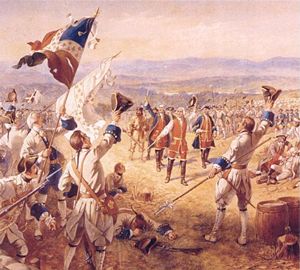 The French and Indian War The French and Indian War
|
| 197 | 1755 | - 1755—1755: Publication of Dictionary of the English Language' by Dr Samuel Johnson
- 1755—1755: Period of canal construction began in Britain (till 1827)
- 2 Dec 1755—2 Dec 1755: Second Eddystone Lighthouse destroyed by fire
|
| 198 | 1756 | - 15 May 1756—15 May 1756: The Seven Years War with France (Pitt's trade war) begins
- Jun 1756—Jun 1756: Black Hole of Calcutta - 146 Britons imprisoned, most die according to British
sources
|
| 199 | 1757 | - 1757—1757: The foundation laid for the Empire of India
- 14 Mar 1757—14 Mar 1757: Admiral Byng shot at Portsmouth for failing to relieve Minorca
- 23 Jun 1757—23 Jun 1757: The Nawab of Bengal tries to expel the British, but is defeated at the battle of
Plassey (Palashi, June 23) - the East India Company forces are led by Robert Clive
|
| 200 | 1758 | - 1758—1758: India stops being merely a commercial venture - England begins dominating it
politically - The East India Company retains its monopoly although it ceased to trade
|
| 201 | 1759 | - 1759—1759: Wesley builds 356 Methodist chapels
- 15 Jan 1759—15 Jan 1759: British Museum opens to the public in London
- 16 Oct 1759—16 Oct 1759: Third Eddystone Lighthouse (John Smeaton's) completed
|
| 202 | 1760 | - 1760—1760: Carron Iron Works in operation in Scotland
- 5 May 1760—5 May 1760: First use of hangman's drop
- 25 Oct 1760—25 Oct 1760: George II dies - George III Hanover, his grandson, becomes king. The date conventionally marks the start of the so-called first Industrial Revolution'
|
| 203 | 1761 | - 16 Jan 1761—16 Jan 1761: British capture Pondicherry, India from the French
|
| 204 | 1762 | - 1762—1762: Cigars introduced into Britain from Cuba
|
| 205 | 1763 | - 1763—1763: Treaty of Paris - gives back to France everything Pitt fought to obtain - (Newfoundland
[fishing], Guadaloupe and Martininque [sugar], Dakar [gum]) - but English displaces French
as the international language
|
| 206 | 1764 | - 1764—1764: Lloyd's Register of shipping first prepared
- 1764—1764: Practice of numbering houses introduced to London
- 1764—1764: James Hargeaves invents the Spinning Jenny (but destroyed 1768)
- 1764—1764: Mozart produces his first symphony at age eight
|
| 207 | 1765 | - 1765—1765: The potato becomes the most popular food in Europe
- 22 Mar 1765—22 Mar 1765: Stamp Act passed - imposed a tax on publications and legal documents in the
American colonies (repealed the following year)
|
| 208 | 1766 | - 1766—1766: Start of 'composite' national records on rainfall in the UK
- 5 Dec 1766—5 Dec 1766: Christie's auction house founded in London by James Christie
|
| 209 | 1767 | - 1767—1767: Newcomen's steam pumping engine perfected by James Watt
|
| 210 | 1768 | - 9 Jan 1768—9 Jan 1768: Philip Astley starts his circus in London
- 6 Dec 1768—6 Dec 1768: The first edition of the Encyclopaedia Britannica' published in Edinburgh by
William Smellie
|
| 211 | 1769 | - 1769—1769: Arkwright invents water frame (textile production)
- 1769—1769: Capt James Cook maps the coast of New Zealand
- 6 Sep 1769—6 Sep 1769: David Garrick organises first Shakespeare festival at Stratford-upon-Avon
|
| 212 | 1770 | - 1770—1770: Clyde Trust created to convert the River Clyde, then an insignificant river, into a major
thoroughfare for maritime communications
- 28 Apr 1770—28 Apr 1770: Capt James Cook lands in Australia (Botany Bay) ? Aug 21: formally claims
Australia for Britain
|
| 213 | 1771 | - 1771—1771: Right to report Parliamentary debates established in England
|
| 214 | 1772 | - 1772—1772: First Travellers' Cheques issued by the London Credit Exchange Company
- 1772—1772: Morning Post' first published (until 1937)
- 14 May 1772—14 May 1772: Judge Mansfield rules that there is no legal basis for slavery in England
|
| 215 | 1774 | - 13 Sep 1774—13 Sep 1774: Cook arrives on Easter Island
|
| 216 | 1775 | - 19 Apr 1775—19 Apr 1775: Battle of Lexington: first action in American War of Independence (1775- 1783)
- 19 Apr 1775—3 Sep 1783:
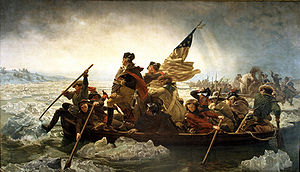 American Revolutionary War American Revolutionary War
|
| 217 | 1776 | - 1776—1776: Somerset House in London becomes the repository of records of population
- 1776—1776: Watt and Boulton produce their first commercial steam engine
- 4 Jul 1776—4 Jul 1776: American Declaration of Independence
- 7 Sep 1776—7 Sep 1776: First attack on a warship by a submarine - David Bushnell's ?Turtle' attacked
HMS Eagle in New York harbour. The attack was perhaps spectacular (a charge did
detonate beneath the ship) but was nevertheless unsuccessful. 'Turtle' was a one man
Affair man-powered [Les Moore]
|
| 218 | 1777 | - 1777—1777: Samuel Miller of Southampton patents the circular saw.
|
| 219 | 1779 | - 1779—1779: Marc Isambard Brunel opens the first steamdriven sawmill at Chatham Dockyard in Kent
- 1779—1779: First iron bridge built, over the Severn by John Wilkinson
- 1779—1779: First Spinning Mills operational in Scotland
- 14 Feb 1779—14 Feb 1779: Capt James Cook killed on Hawaii
- 23 Sep 1779—23 Sep 1779: Naval engagement between Britain and USA off Flamborough Head
|
| 220 | 1780 | - 1780—1780: Male Servants Tax
- 1780—1780: The English Reform Movement - until now, only landowners and tenants (freeholders
with 40 shillings per year or more) allowed to vote, and in open poll books
- 1780—1780: Fountain pen invented
- 1780—1780: About this time the word 'Quiz' entered the language, said to have been invented as a
wager by Mr Daly, a Dublin theatre manager
- 4 May 1780—4 May 1780: First Derby run at Epsom (some say 2nd June)
- 2 Jun 1780—2 Jun 1780: Jun 2- 8: The Gordon Riots - Parliament passes a Roman Catholic relief measure - for
days, London is at the mercy of a mob and destruction is widespread
|
| 221 | 1782 | - 1782—1782: Gilbert's Act establishes outdoor poor relief - the way of life of the poor beginning to
alter due to industrialisation - New factories in rapidly expanding towns required a workforce
that would adjust to new work patterns
- 1782—1782: James Watt patents his steam engine
|
| 222 | 1783 | - 1783—1783: Duty payable on Parish Register entries (3d per entry - repealed 1794) - led to a fall in
entries!
- 3 Sep 1783—3 Sep 1783: Treaty of Versailles (Britain/US)
- 3 Nov 1783—3 Nov 1783: Last public execution at Tyburn in London (John Austin, a highwayman)
|
| 223 | 1784 | - 1784—1784: Pitt's India Act - the Crown (as opposed to officers of the East India Company) has
power to guide Indian politics
- 1784—1784: Wesley breaks with the Church of England
- 1784—1784: First golf club founded at St Andrews
- 1784—1784: Invention of threshing machine by Andrew Meikle
- 2 Aug 1784—2 Aug 1784: First mail coaches in England (4pm Bristol / 8am London)
|
| 224 | 1785 | - 1785—1785: Sunday School Society founded to educate poor children (by 1851, enrols more than 2
million)
- 1785—1795:
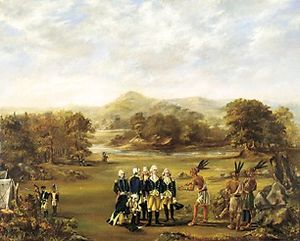 Northwest Indian War Northwest Indian War
- 1 Jan 1785—1 Jan 1785: John Walter publishes first edition of The Times (called The Daily Universal
Register for 3 years)
|
| 225 | 1787 | - 1787—1787: MCC (Marylebone Cricket Club) established at Thomas Lord's ground in London
|
| 226 | 1788 | - 1788—1788: First steamboat demonstrated in Scotland
- 1788—1788: Law passed requiring that chimney sweepers be a minimum of 8 years old (not
enforced)
- 1788—1788: First slave carrying act, the Dolben Act of 1788, regulates the slave trade - stipulates
more humane conditions on slave ships
- 1788—1788: King George III's mental illness occasions the Regency Crisis - Edmund Burke and
Charles James Fox attack ministry of William Pitt - trying to obtain full regal powers for the
Prince of Wales
- 1788—1788: Gibbon completes Decline and Fall of the Roman Empire'
- 26 Jan 1788—26 Jan 1788: First convicts (and free settlers) arrive in New South Wales (left Portsmouth 13
May 1787) ? the 'First Fleet'; eleven ships commanded by Captain Arthur Phillip
|
| 227 | 1789 | - 28 Apr 1789—28 Apr 1789: Mutiny on HMS Bounty - Captain William Bligh and 18 sailors are set adrift
and the rebel crew ends up on Pitcairn Island
- 30 Apr 1789—4 Mar 1797:
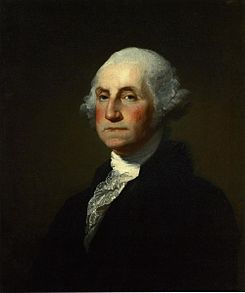 George Washington U.S. Presidency George Washington U.S. Presidency
|
| 228 | 1790 | - 1790—1790: Forth and Clyde Canal opened in Scotland
|
| 229 | 1791 | - 1791—1791: John Bell, printer, abandons the long s' (the 's' that looks like an 'f')
- 1791—1791: Establishment of the Ordnance Survey of Great Britain
- 4 Dec 1791—4 Dec 1791: First publication of The Observer - world's oldest Sunday newspaper
|
| 230 | 1792 | - 1792—1792: Repression in Britain (restrictions on freedom of the press) - Fox gets Libel Act through
Parliament, requiring a jury and not a judge to determine libel
- 1792—1792: Boyle's Street Directory published
- 1792—1792: Coal-gas lighting invented by William Murdock, an Ayrshire Scot
- 1 Oct 1792—1 Oct 1792: Introduction of Money Orders in Britain
- 1 Dec 1792—1 Dec 1792: King's Proclamation drawing out the British militia
|
| 231 | 1793 | - 11 Feb 1793—11 Feb 1793: Britain declares war on France (1793-1802)
- 15 Apr 1793—15 Apr 1793: ?5 notes first issued by the Bank of England
|
| 232 | 1794 | - 1794—1794: Abolition of Parish Register duties
- 6 Oct 1794—6 Oct 1794: The prosecutor for Britain, Lord Justice Eyre, charges reformers with High
Treason - he argued that, since reform of parliament would lead to revolution and revolution
to executing the King, the desire for reform endangered the King's life and was therefore
treasonous
|
| 233 | 1795 | - 1795—1795: The Famine Year
- 1795—1795: Foundation of the Orange Order
- 1795—1795: Speenhamland Act proclaims that the Parish is responsible for bringing up the labourer's
wage to subsistence level - towards the end of the eighteenth century, the number of poor and
unemployed increased dramatically - price increases during the Napoleonic Wars
(1793-1815) far outstripped wage rises - many small farmers were bankrupted by the move
towards enclosures and became landless labourers - their wages were often pitifully low
- 1795—1795: Pitt and Grenville introduce The Gagging Acts' or 'Two Bills' (the Seditious Meetings and Treasonable Practices Bills) - outlawed the mass meeting and the political lecture.
- 1795—1795: Consumption of lime juice made compulsory in Royal Navy
|
| 234 | 1796 | - 1796—1796: Pitt's Reign of Terror': More treason trials - leading radicals emigrate
- 1796—1796: Legacy Tax on sums over ?20 excluding those to wives, children, parents and
grandparents
- 14 May 1796—14 May 1796: Dr Edward Jenner gave first vaccination for smallpox in England
|
| 235 | 1797 | - 1797—1797: England in Crisis, Bank of England suspends cash payments
- 1797—1797: Mutinies in the British Navy at Spithead and Nore
- 1797—1797: Tax on newspapers (including cheap, topical journals) increased to repress radical
publications
- 1797—1797: The first copper pennies were produced ('cartwheels') by application of steam power to
the coining press
- 22 Feb 1797—22 Feb 1797: French invade Fishguard, Wales; last time UK invaded; all captured 2 days later
- 26 Feb 1797—26 Feb 1797: First ?1 (and ?2) notes issued by Bank of England
- 4 Mar 1797—4 Mar 1801:
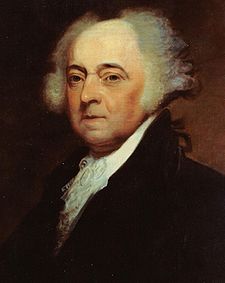 John Adams U.S. Presidency John Adams U.S. Presidency
|
| 236 | 1798 | - 1798—1798: First planned human experiment with vaccination, to test theories of Edward Jenner
- Feb 1798—Feb 1798: The Irish Rebellion; 100,000 peasants revolt; approximately 25,000 die - Irish
Parliament abolished (Feb-Oct)
- 7 Jul 1798—30 Sep 1800:
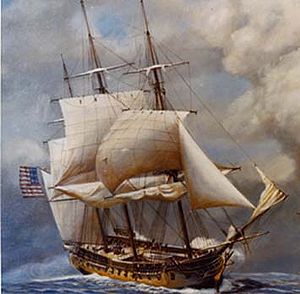 Franco-American War Franco-American War
- 1 Aug 1798—1 Aug 1798: Battle of the Nile (won by Nelson)
|
| 237 | 1799 | - 1799—1799: Foundation of Royal Military College Sandhurst by the Duke of York
- 1799—1799: Foundation of the Royal Institution of Great Britain
- 9 Jan 1799—9 Jan 1799: Pitt brings in 10% income tax, as a wartime financial measure
- 12 Jul 1799—12 Jul 1799: 'Combination Laws' in Britain against political associations and combinations
- 15 Jul 1799—15 Jul 1799: ?Rosetta Stone' discovered in Egypt made possible the deciphering (in 1822) of Ancient Egyptian hieroglyphics
|
| 238 | 1800 | - 1800—1800: Electric light first produced by Sir Humphrey Davy
- 1800—1800: Use of high pressure steam pioneered by Richard Trevithick (1771-1833)
- 1800—1800: Royal College of Surgeons founded
- 1800—1800: Herschel discovers infra-red light
- 1800—1800: Volta makes first electrical battery
- 2 Jul 1800—2 Jul 1800: Parliamentary union of Great Britain and Ireland
|
| 239 | 1801 | - 1801—1801: Grand Union Canal opens in England
- 1801—1801: Elgin Marbles brought from Athens to London
- 1 Jan 1801—1 Jan 1801: Union Jack becomes the official British flag
- 4 Mar 1801—4 Mar 1809:
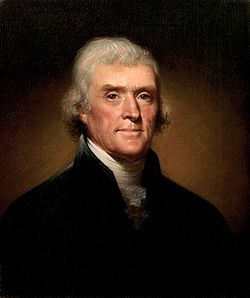 Thomas Jefferson U.S. Presidency Thomas Jefferson U.S. Presidency
- 10 Mar 1801—10 Mar 1801: First census puts the population of England and Wales at 9,168,000. Population of Britain nearly 11 million (75% rural)
- 10 May 1801—10 Jun 1805:
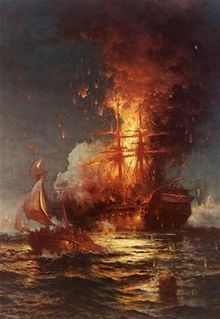 First Barbary War First Barbary War
- 24 Dec 1801—24 Dec 1801: Richard Trevithick built the first self-propelled passenger carrying road loco
|
| 240 | 1802 | - 25 Mar 1802—25 Mar 1802: Treaty of Amiens signed by Britain, France, Spain, and the Netherlands ? the 'Peace of Amiens' as it was known brought a temporary peace of 14 months during the Napoleonic Wars ? one of its most important cultural effects was that travel and correspondence across the English Channel became possible again
|
| 241 | 1803 | - 1803—1803: Poaching made a Capital offense in England if capture resisted
- 1803—1803: Richard Trevithick built another steam carriage and ran it in London as the first
self-propelled vehicle in the capital and the first London bus
- 1803—1803: Semaphore signaling perfected by Admiral Popham
- 30 Apr 1803—30 Apr 1803: Louisiana Purchase: Napoleon sells French possessions in America to United States
- 12 May 1803—12 May 1803: Peace of Amiens ends ? resumption of war with France ? The Napoleonic Wars (1803-18l5)
- 23 Jul 1803—23 Jul 1803: First public railway opens (Surrey Iron Railway, 9 miles from Wandsworth to
Croydon, horse-drawn)
|
| 242 | 1804 | - 1804—1804: Matthew Flinders recommends that the newly discovered country, New Holland, be renamed 'Australia'
- 21 Feb 1804—21 Feb 1804: Richard Trevithick runs his railway engine on the Penydarren Railway (9.5 miles
from Pen-y-Darren to Abercynon in South Wales) this hauled a train with 10 tons of
iron and 70 passengers. It was commemorated by the Royal Mint in 2004 in the form of
A ?2 coin.
- 3 Mar 1804—3 Mar 1804: John Wedgwood (eldest son of the potter Josiah Wedgwood) founds The Royal
Horticultural Society
- 2 Dec 1804—2 Dec 1804: Napoleon declares himself Emperor of the French
- 12 Dec 1804—12 Dec 1804: Spain declares war on Britain
|
| 243 | 1805 | - 1805—1805: London docks opened
- 21 Oct 1805—21 Oct 1805: Admiral Nelson's victory at Trafalgar
- 2 Dec 1805—2 Dec 1805: Battle of Austerlitz; Napoleon defeats Austrians and Russians
|
| 244 | 1806 | - 1806—1806: Dartmoor Prison opened (built by French prisoners)
- 9 Jan 1806—9 Jan 1806: Nelson buried in St Paul's cathedral, London
|
| 245 | 1807 | - 25 Mar 1807—25 Mar 1807: Parliament passes Act prohibiting slavery and the importation of slaves from 1808 ? but does not prohibit colonial slavery
|
| 246 | 1808 | - 1808—1808: Gas lighting in London streets
- 13 Jul 1808—13 Jul 1808: 'Hot Wednesday' ? temperature of 101?F in the shade recorded in London
- 20 Dec 1808—20 Dec 1808: Beethoven premieres his Fifth Symphony, Sixth Symphony, Fourth Piano Concerto and Choral Fantasy together in Vienna
|
| 247 | 1809 | - 12 Feb 1809—12 Feb 1809: Birth of Charles Darwin
- 4 Mar 1809—4 Mar 1817:
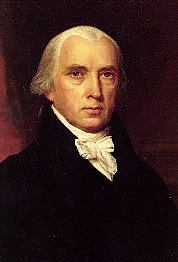 James Madison U.S. Presidency James Madison U.S. Presidency
- 18 Sep 1809—18 Sep 1809: Royal Opera House opens in London
|
| 248 | 1810 | - 1810—1810: John McAdam begins road construction in England, giving his name to the process of
road metalling
|
| 249 | 1811 | - 5 Feb 1811—5 Feb 1811: Prince of Wales (future George IV) made Regent after George III deemed insane
|
| 250 | 1812 | - 11 May 1812—11 May 1812: Prime Minister, Spencer Perceval, assassinated ? shot as he entered the House of Commons by a bankrupt Liverpool broker, John Bellingham, who was subsequently hanged
- 18 Jun 1812—18 Jun 1812: Start of American 'War of 1812' (to 1814) against England and Canada
- 18 Jun 1812—17 Feb 1815:
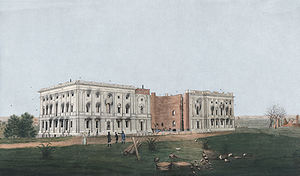 War of 1812 War of 1812
- Oct 1812—Oct 1812: Napoleon retreats from Moscow with catastrophic losses
|
| 251 | 1813 | - 1813—1813: Ireland: First recorded '12th of July' sectarian riots in Belfast
- 1813—1813: Jane Austen wrote 'Pride and Prejudice'
|
| 252 | 1814 | - 1 Jan 1814—1 Jan 1814: Invasion of France by Allies
- 6 Apr 1814—6 Apr 1814: Napoleon abdicates and is exiled to Elba
- 13 Aug 1814—13 Aug 1814: Convention of London signed, a treaty between the UK and the Dutch
- 24 Aug 1814—24 Aug 1814: The British burn the White House
- 29 Nov 1814—29 Nov 1814: 'The Times' first printed by a 'mechanical apparatus' (at 1100 sheets per hour)
- 24 Dec 1814—24 Dec 1814: Treaty of Ghent signed ending the 1812 war between Britain and the US
|
| 253 | 1815 | - 1815—1815: Trial by Jury established in Scotland
- 1815—1815: Davy develops the safety lamp for miners
- 3 Mar 1815—5 Dec 1815:
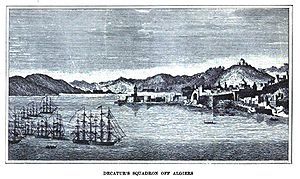 Second Barbary War Second Barbary War
- 18 Jun 1815—18 Jun 1815: The Battle of Waterloo: Napoleon defeated and exiled to St. Helena
|
| 254 | 1816 | - 1816—1816: Income tax abolished
- 1816—1816: For the first time British silver coins were produced with an intrinsic value substantially
below their face value ? the first official 'token' coinage
- 1816—1816: Climate: the 'year without a summer' ? followed a volcanic explosion of the mountain 'Tambora in Indonesia the previous year the biggest volcanic explosion in 10000 years
- 1816—1816: Large scale emigration to North America
- 1816—1816: Trans-Atlantic packet service begins
|
| 255 | 1817 | - 1817—1817: March of the Manchester Blanketeers; Habeas Corpus suspended
- 1817—1817: Constable painted 'Flatford Mill'
- 4 Mar 1817—4 Mar 1825:
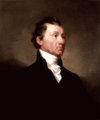 James Monroe U.S. Presidency James Monroe U.S. Presidency
|
| 256 | 1818 | - 1818—1818: Manchester cotton spinners' strike
- 20 Oct 1818—20 Oct 1818: 'Convention of 1818' signed between the United States and the United Kingdom
which, among other things, settled the US-Canada border on the 49th parallel for most of its
length
|
| 257 | 1819 | - 1819—1819: Primitive bicycle, the Dandy Horse, becomes popular
- 1819—1819: Britain returns to gold standard
- 1819—1819: Singapore founded by Sir Stamford Raffles
- May 1819—May 1819: SS 'Savannah' first steamship to cross Atlantic reaching Liverpool 20 June 1819 (26
Days reaching Liverpool 20 June 1819 (26
Days mostly under sail)
- 16 Aug 1819—16 Aug 1819: Peterloo Massacre at Manchester ? a large, orderly group of 60,000 meets at St.
Peter's Fields, Manchester ? demand Parliamentary Reform ? mounted troops charge on the
meeting, killing 11 people and and maiming many others
|
| 258 | 1820 | - 1820—1820: Cato Street Conspiracy ? plot to assissinate British cabinet
- 1820—1820: Abolition of the Spanish Inquisition
- 29 Jan 1820—29 Jan 1820: Accession of George IV, previously Prince Regent
- 1 Aug 1820—1 Aug 1820: Regent's Canal in London opens
- 17 Aug 1820—17 Aug 1820: Trial of Queen Caroline to prove her infidelities so George IV can divorce her ?
George tries to secure a Bill of Pains and Penalties against her ? Caroline is virtually acquitted
because bill passed by such a small majority of Lords
|
| 259 | 1821 | - 1821—1821: Faraday publishes 'Principles of electro-magnetic rotation'
- 1821—1821: Constable paints 'The Hay Wain'
- 5 May 1821—5 May 1821: Napoleon Bonaparte dies on St Helena
|
| 260 | 1822 | - 14 Jun 1822—14 Jun 1822: Charles Babbage proposes a difference engine in a paper to the Royal Astronomical Society
|
| 261 | 1823 | - 1823—1823: New laws concerning marriage by license ? 'very troublesome' according to some the Act was repealed all in a hurry at the beginning of the next session
- 1823—1823: Peel begins penal reforms ? death penalty abolished for over 100 crimes
- 1823—1823: Rugby Football 'invented' at Rugby School
- 1823—1823: Rubberised waterproof material produced by MacIntosh
- 2 Dec 1823—2 Dec 1823: US President James Monroe delivers a speech establishing American neutrality in
future European conflicts (the 'Monroe Doctrine')
|
| 262 | 1824 | - 1824—1824: RSPCA established
- 1824—1824: Portland cement patented
- 4 Mar 1824—4 Mar 1824: Royal National Lifeboat Institution (RNLI) founded (called the 'National Institution for the Preservation of Life from Shipwreck' until 1854)
- 10 May 1824—10 May 1824: National Gallery in London opens to the public
|
| 263 | 1825 | - 4 Mar 1825—4 Mar 1829:
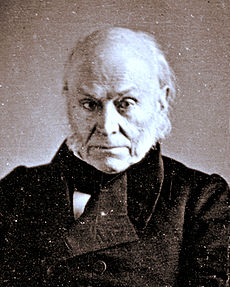 John Quincy Adams U.S. Presidency John Quincy Adams U.S. Presidency
- 27 Sep 1825—27 Sep 1825: Stockton to Darlington Railway opens ? world's first service of locomotive-hauled passenger trains
|
| 264 | 1827 | - 1827—1827: Ohm's Law published
|
| 265 | 1828 | - 25 Oct 1828—25 Oct 1828: St Katharine Docks in London opened (designed by Thomas Telford)
|
| 266 | 1829 | - 1829—1829: London Metropolitan Police Force formed, nicknamed 'Bobbies' after Sir Robert Peel
- 1829—1829: Louis Braille invents his system of finger-reading for the blind
- 4 Mar 1829—4 Mar 1837:
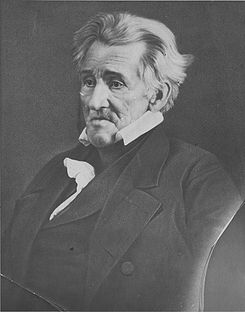 Andrew Jackson U.S. Presidency Andrew Jackson U.S. Presidency
- 10 Jun 1829—10 Jun 1829: First Oxford/Cambridge Boat Race
- 6 Oct 1829—6 Oct 1829: George Stephenson's Rocket wins the Rainhill trials (it was the only one to
complete the trial!)
|
| 267 | 1830 | - 1830—1830: Uprisings and agitation across Europe: the Netherlands are split into Holland and
Belgium
- Jul 1830—Jul 1830: Revolution in France, fall of Charles X and the Bourbons ? Louis Philippe (the
Citizen King) on the throne
- 15 Sep 1830—15 Sep 1830: George Stephenson's Liverpool & Manchester Railway opened by the Duke of
Wellington ? first mail carried by rail, and first death on the railway as William Huskisson, a
leading politician, is run over!
|
| 268 | 1831 | - 1831—1831: A list of all parish registers dating prior to 1813 compiled
- 1 Jun 1831—1 Jun 1831: James Clark Ross discovers the North Magnetic Pole
- 1 Aug 1831—1 Aug 1831: 'New' London Bridge opens (replaced 1973) ? old bridge (which had existed for over 600 years) then demolished
|
| 269 | 1832 | - 1832—1832: Electoral Registers introduced
- 1832—1832: Electric telegraph invented by Morse
- 6 Apr 1832—27 Aug 1832:
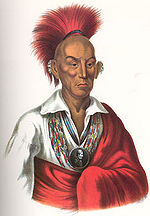 Black Hawk War Black Hawk War
- 7 Jun 1832—7 Jun 1832: Reform Bill passed ? Representation of the People Act
|
| 270 | 1833 | - Jan 1833—Jan 1833: Britain invades the Falkland Islands
- 29 Aug 1833—29 Aug 1833: Factory Act forbids employment of children below age of 9
|
| 271 | 1834 | - 1834—1834: Babbage invents forerunner of the computer
- 18 Mar 1834—18 Mar 1834: 'Tolpuddle Martyrs' transported (to Australia) for Trades Union activities
- 1 May 1834—1 May 1834: Slavery abolished in British possessions
|
| 272 | 1835 | - 1835—1835: Christmas becomes a national holiday
- 1835—1835: First railway boom period starts in Britain construction of Great Western Railway
- 2 Oct 1835—21 Apr 1836:
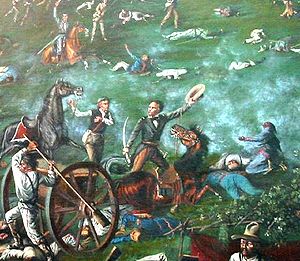 Texas War of Independence Texas War of Independence
|
| 273 | 1836 | - 1836—1836: First Potato famine in Ireland
- 30 Jan 1836—30 Jan 1836: Telford's Menai Straits Bridge opened ? considered the world's first modern suspension bridge
- 25 Feb 1836—25 Feb 1836: Samuel Colt patented the 'revolver'
- 6 Mar 1836—6 Mar 1836: The Alamo falls to Mexican troops - death of Davy Crockett
- Jul 1836—Jul 1836: Inauguration of the Arc de Triomphe in Paris
|
| 274 | 1837 | - 1837—1837: Pitman introduces his shorthand system
- 1837—1837: P&O Founded
- 4 Mar 1837—4 Mar 1841:
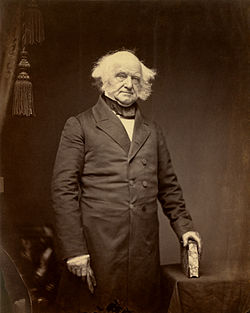 Martin Van Buren U.S. Presidency Martin Van Buren U.S. Presidency
- 20 Jun 1837—20 Jun 1837: William IV dies - accession of Queen Victoria (to 1901)
- 1 Jul 1837—1 Jul 1837: Compulsory registration of Births, Marriages & Deaths in England & Wales -
Registration Districts were formed covering several parishes; initially they had the same
boundaries as the Poor Law boundaries set up in 1834
- 13 Jul 1837—13 Jul 1837: Queen Victoria moves into the first Buckingham Palace
- 20 Jul 1837—20 Jul 1837: Euston Railway station opens - first in London
|
| 275 | 1838 | - 28 Jun 1838—28 Jun 1838: Coronation of Queen Victoria at Westminster Abbey
|
| 276 | 1839 | - 1839—1839: First Opium War between Britain and China (to 1842) - Britain captures Hong Kong
- 1839—1839: Scottish blacksmith Kirkpatrick MacMillan refines the primitive bicycle adding a
mechanical crank drive to the rear wheel,thus creating the first true 'bicycle' in the modern
Sense
- 1839—1839: Charles Goodyear invented vulcanized rubber
|
| 277 | 1840 | - 1840—1840: Population Act relating to taking of censuses in Britain
- 1840—1840: Last convicts landed in NSW (some say 1842 or 1849, but these probably landed
elsewhere)
- 10 Jan 1840—10 Jan 1840: Uniform Penny Postage introduced nationally
|
| 278 | 1841 | - 1841—1841: Thomas Cook starts package tours
- 10 Feb 1841—10 Feb 1841: Penny Red replaces Penny Black postage stamp
- 4 Mar 1841—4 Apr 1841:
 William Henry Harrison U.S. Presidency William Henry Harrison U.S. Presidency
- 4 Apr 1841—4 Mar 1845:
 John Tyler U.S. Presidency John Tyler U.S. Presidency
- 6 Jun 1841—6 Jun 1841: June 6: First full census in Britain in which all names were recorded (Population 18.5M)
|
| 279 | 1842 | - 1842—1842: Income Tax reintroduced in Britain
- 30 Mar 1842—30 Mar 1842: Ether used as an anesthetic for the first time (by Dr Crawford Long in America)
- 29 Aug 1842—29 Aug 1842: Treaty of Nanking - End of First Opium War - Britain gains Hong Kong
|
| 280 | 1843 | - 1843—1843: First Christmas card in England
- 27 May 1843—27 May 1843: The Great Hall of Euston station opened in London
- 19 Jul 1843—19 Jul 1843: Brunel's 'Great Britain' launched
|
| 281 | 1844 | - 6 Jun 1844—6 Jun 1844: YMCA founded in London by Sir George Williams
|
| 282 | 1845 | - 1845—1845: Tarmac laid for first time (in Nottingham)
- 4 Mar 1845—4 Mar 1849:
 James K. Polk U.S. Presidency James K. Polk U.S. Presidency
- 17 Mar 1845—17 Mar 1845: The rubber band patented by Stephen Perry
|
| 283 | 1846 | - 25 Apr 1846—2 Feb 1848:
 Mexican-American War Mexican-American War
- 10 Sep 1846—10 Sep 1846: The sewing machine is patented by Elias Howe
|
| 284 | 1847 | - 1847—1847: US Mormons make Salt Lake City their centre
- Jan 1847—Jan 1847: An anesthetic used for the first time in England (James Simpson used ether to numb the pain of labour)
|
| 285 | 1848 | - 1848—1848: First commercial production of chewing gum
- 24 Jan 1848—24 Jan 1848: Gold found at Sutter's Mill, California - starts the California gold rush
- 11 Jul 1848—11 Jul 1848: Waterloo railway station in London opens
|
| 286 | 1849 | - 1849—1849: Florin (2 shilling coin) introduced as the first step to decimalisation - which finally
occurred in 1971!
- 4 Mar 1849—9 Jul 1850:
 Zachary Taylor U.S. Presidency Zachary Taylor U.S. Presidency
|
| 287 | 1850 | |
| 288 | 1851 | - 1851—1851: Gold discovered in Australia
- 1 May 1851—1 May 1851: Great exhibition of the works of industry of all nations ('Crystal Palace' exhibition) opened in Hyde Park
|
| 289 | 1852 | - 1852—1852: Tasmania ceases to be a convict settlement
- 1852—1852: Wells Fargo established in USA
|
| 290 | 1853 | |
| 291 | 1854 | - 1854—1854: Cigarettes introduced into Britain
- 27 Mar 1854—27 Mar 1854: Britain declares war on Russia (Crimean War)
- 25 Oct 1854—25 Oct 1854: Battle of Balaklava in Crimea (charge of the Light Brigade)
|
| 292 | 1856 | - 1856—1856: End of Crimean War
- 29 Jan 1856—29 Jan 1856: Victoria Cross created by Royal Warrant, backdated to 1854 to recognise acts
during the Crimean War (first award ceremony 26 June 1857)
|
| 293 | 1857 | |
| 294 | 1858 | - 1858—1858: 'The great stink' - smell of the River Thames forced Parliament to stop work
- 1858—1858: Royal Opera House opens in Covent Garden, London
|
| 295 | 1859 | - 1859—1859: Peaceful picketing legalised in Britain
- 25 Apr 1859—25 Apr 1859: Work started on building the Suez canal (opened 17 Nov 1869)
- 4 May 1859—4 May 1859: Brunel's Royal Albert Bridge opened at Saltash giving rail link between Devon
and Cornwall
- 24 Nov 1859—24 Nov 1859: Charles Darwin publishes 'The Origin of Species'
|
| 296 | 1860 | - 29 Aug 1860—29 Aug 1860: First tram service in Europe starts in Birkenhead
|
| 297 | 1861 | |
| 298 | 1862 | - 1862—1862: Lincoln issues first legal US paper money (Greenbacks)
- 20 Apr 1862—20 Apr 1862: First pasteurisation test completed by Louis Pasteur and Claude Bernard
|
| 299 | 1863 | - 1863—1863: Football Association founded (UK)
- 1863—1863: Opening of state institution for criminally insane at Broadmoor, England
- 10 Jan 1863—10 Jan 1863: First section of the London Underground Railway opens
|
| 300 | 1864 | - 1864—1864: A man-powered submarine, 'Hunley' sank a Federal steam ship USS Housatonic at the entrance to Charleston harbour in 1864 - the first recorded successful attack by a submarine on a surface ship
- 11 Mar 1864—11 Mar 1864: The Great Sheffield Flood - over 250 died when a new dam broke while it was being filled for the first time
- 20 Aug 1864—20 Aug 1864: Red Cross established - Twelve nations sign the First Geneva Convention
- 8 Dec 1864—8 Dec 1864: Clifton Suspension Bridge over the River Avon officially opened
|
| 301 | 1865 | - 1865—1865: Elizabeth Garrett Anderson (1836-1917) becomes first woman doctor in England [she later became the first woman mayor in England, in Aldeburgh 1908]
- 1865—1865: First concrete roads built in Britain
- 14 Apr 1865—14 Apr 1865: End of American Civil War - slavery abolished in USA
- 14 Apr 1865—14 Apr 1865: Abraham Lincoln assassinated in Ford's Theatre by John Wilkes Booth
- 15 Apr 1865—4 Mar 1869:
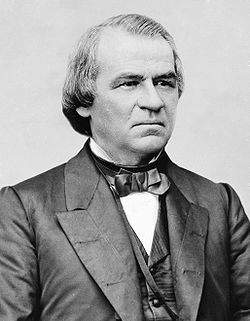 Andrew Johnson U.S. Presidency Andrew Johnson U.S. Presidency
- 5 Jul 1865—5 Jul 1865: William Booth (1829-1912) founds Salvation Army, in London
|
| 302 | 1867 | - 1 Jul 1867—1 Jul 1867: The British North America Act takes effect, creating the Canadian Confederation
|
| 303 | 1868 | - 1868—1868: Last convicts landed in Australia (Western Australia)
|
| 304 | 1869 | - 1869—1869: Ball bearings, celluloid, margarine, and washing machines, all invented
- 4 Mar 1869—4 Mar 1877:
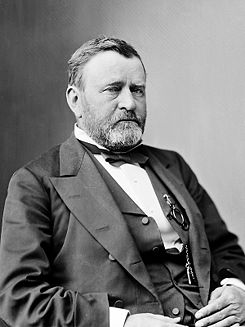 Ulysses S. Grant U.S. Presidency Ulysses S. Grant U.S. Presidency
- 23 Nov 1869—23 Nov 1869: Cutty Sark launched in Dumbarton
|
| 305 | 1870 | - 1870—1870: GPO takes over the privately-owned Telegraph Companies (nationalised)
- 1870—1870: Dr Thomas Barnardo opens his first home for destitute children
- 1870—1870: Water closets come into wide use
- 1870—1870: Diamonds discovered in Kimberley, South Africa
- 1 Oct 1870—1 Oct 1870: First British postcard - halfpenny post
|
| 306 | 1871 | - 27 Mar 1871—27 Mar 1871: First Rugby Football international, England v Scotland, played in Edinburgh
- 29 Mar 1871—29 Mar 1871: Opening of Royal Albert Hall, London
- 29 Jun 1871—29 Jun 1871: Trades Unions legalised in Britain, but picketing made illegal
|
| 307 | 1872 | - 1872—1872: Licensing hours introduced
- 1872—1872: Penalties introduced for failing to register births, marriages & deaths (Eng & Wales)
- 4 Dec 1872—4 Dec 1872: American ship 'Mary Celeste' is found abandoned by the British brig 'Dei Gratia' in the Atlantic Ocean
|
| 308 | 1874 | - 1874—1874: Factory Act introduces 56-hour week
- 5 Apr 1874—5 Apr 1874: Birkenhead Park opened, said to be the first civic public park in the world - features of it later copied in Central Park, New York
|
| 309 | 1875 | - 1875—1875: London's main sewage system completed
- 1 Jan 1875—1 Jan 1875: Midland Railway abolishes Second Class passenger facilities, leaving First Class and Third Class. Other British railway companies followed during the rest of the year. (Third Class was renamed Second Class in 1956)
|
| 310 | 1876 | - 14 Feb 1876—14 Feb 1876: Alexander Graham Bell and Elisha Gray each file a patent for the telephone - Bell awarded the rights
|
| 311 | 1877 | |
| 312 | 1878 | - 1878—1878: Edison & Swan invent electric lamp
- 1878—1878: Red Flag Act in Britain limits mechanical road vehicles to 4mph
- 1878—1878: CID established at New Scotland Yard
|
| 313 | 1879 | - 18 Sep 1879—18 Sep 1879: Blackpool illuminations switched on for first time
|
| 314 | 1880 | - 1880—1880: Education Act: schooling compulsory for 5-10 year olds
- 1880—1880: Mosquito found to be the carrier of malaria
- 2 Aug 1880—2 Aug 1880: Greenwich Mean Time adopted throughout UK
|
| 315 | 1881 | - 1881—1881: Postal Orders introduced
- 1881—1881: Flogging abolished in Army and Royal Navy
- 4 Mar 1881—19 Sep 1881:
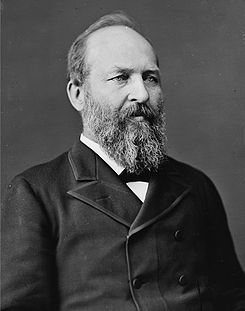 James A. Garfield U.S. Presidency James A. Garfield U.S. Presidency
- Sep 1881—Sep 1881: Godalming in Surrey became the first town in England to have a public electricity
supply installed (but in 1884 it reverted to gas lighting until 1904)
- 19 Sep 1881—4 Mar 1885:
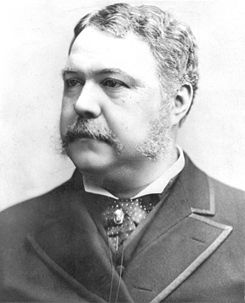 Chester A. Arthur U.S. Presidency Chester A. Arthur U.S. Presidency
- 26 Oct 1881—26 Oct 1881: Gunfight at OK Corral
|
| 316 | 1882 | - 1882—1882: Fourth Eddystone Lighthouse completed
|
| 317 | 1883 | - 1883—1883: Statue of Liberty presented to USA by France
- 24 May 1883—24 May 1883: Brooklyn Bridge, New York opens (crosses East River)
- 1 Aug 1883—1 Aug 1883: Parcel post starts in Britain
- 27 Aug 1883—27 Aug 1883: Eruption of Krakatoa near Java - 30,000 killed by tidal wave
|
| 318 | 1884 | - 31 May 1884—31 May 1884: John Harvey Kellogg patents corn flakes
- 13 Oct 1884—13 Oct 1884: Greenwich made prime meridian of the world
|
| 319 | 1885 | - 1885—1885: Carl Benz builds the 'Motorwagen', a single-cylinder motor car
- 1885—1885: Gottlieb Daimler patents the world's first motorcycle
- 1885—1885: Eastman makes first coated photographic paper
- 1885—1885: Canadian Pacific Railway completed
- Mar 1885—Mar 1885: First UK cremation in modern times took place at Woking
- 4 Mar 1885—4 Mar 1889:
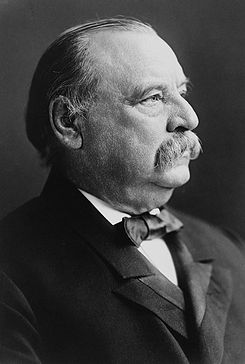 Grover Cleveland U.S. Presidency Grover Cleveland U.S. Presidency
- 5 Sep 1885—5 Sep 1885: The first train runs through the Severn Tunnel
- 29 Sep 1885—29 Sep 1885: First electric tramcar used at Blackpool
|
| 320 | 1886 | - 20 Jan 1886—20 Jan 1886: Mersey railway (under Mersey) opened by Prince of Wales
- May 1886—May 1886: Pharmacist John Styth Pemberton invents a carbonated beverage later named 'Coca-Cola'
- 29 May 1886—29 May 1886: Putney Bridge opens in London
|
| 321 | 1887 | - 1887—1887: Daimler produces a four-wheeled motor car
|
| 322 | 1888 | - 1888—1888: Convention of Constantinople guarantees free maritime passage through Suez Canal in war and peace
- 1888—1888: Jack the Ripper active in east London during the latter half of the year
- 1888—1888: County Councils set up in Britain
- 1888—1888: Dunlop invents pneumatic tyre
- 1888—1888: First box camera - George Eastman registers the trademark Kodak, and receives a patent
for his camera which uses roll film
- 20 Mar 1888—20 Mar 1888: Football League formed
|
| 323 | 1889 | - 1889—1889: Celluloid film produced
- 1889—1889: Dock Strike - docker's won their 'Docker's Tanner' 6 old pennies
- 4 Mar 1889—4 Mar 1893:
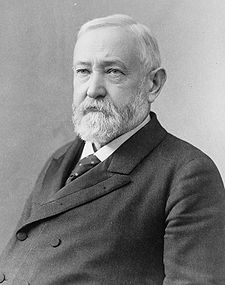 Benjamin Harrison U.S. Presidency Benjamin Harrison U.S. Presidency
- 31 Mar 1889—31 Mar 1889: Eiffel Tower completed (to mark centenary of French Revolution)
- 14 May 1889—14 May 1889: Children's charity NSPCC launched in London
- 3 Jun 1889—3 Jun 1889: Canadian Pacific Railway completed from coast to coast
- 28 Sep 1889—28 Sep 1889: Length of a metre defined
|
| 324 | 1890 | - 4 Mar 1890—4 Mar 1890: Forth railway bridge opens - took six years to build
- 4 Nov 1890—4 Nov 1890: City & South London Railway opens - London's first deep-level tube railway
and first major railway in the world to use electric traction
|
| 325 | 1891 | - 1891—1891: Primary education made free and compulsory
- 18 Mar 1891—18 Mar 1891: First telephone link between London & Paris
- 4 May 1891—4 May 1891: Fictional date when Sherlock Holmes throws Moriarty over Reichenbach Falls, then disappears for 3 years! (published in 1893)
- 24 Aug 1891—24 Aug 1891: Thomas Edison patents the motion picture camera
|
| 326 | 1892 | - 1892—1892: Electric oven invented
- 1892—1892: Shop Hours Act - limit 74 hours per week for under-18's
- 6 Oct 1892—6 Oct 1892: Alfred Lord Tennyson dies, aged 83, at his house Aldworth, near Haslemere
|
| 327 | 1893 | |
| 328 | 1894 | - 1894—1894: Picture postcard introduced in Britain
- 1 Jan 1894—1 Jan 1894: Manchester Ship Canal opens
- 1 Mar 1894—1 Mar 1894: Blackpool Tower opens
- 30 Jun 1894—30 Jun 1894: Tower Bridge first opens
- 2 Aug 1894—2 Aug 1894: Death duties first introduced in Britain
|
| 329 | 1895 | - 1895—1895: Sir Henry Wood starts Promenade Concerts in London
- 12 Jan 1895—12 Jan 1895: The National Trust founded in England
- 24 May 1895—24 May 1895: Henry Irving becomes the first person from the theatre to be knighted
- 28 May 1895—28 May 1895: Oscar Wilde sent to prison
- 12 Jul 1895—12 Jul 1895: First recorded motor journey of any length (56 miles) in Britain
- 17 Oct 1895—17 Oct 1895: First people in Britain to be charged with motor offences - John Henry Knight and James Pullinger of Farnham, Surrey
- Nov 1895—Nov 1895: X-rays discovered
|
| 330 | 1896 | - 5 Apr 1896—5 Apr 1896: First modern Olympic Games held in Athens
- 2 Jun 1896—2 Jun 1896: Guglielmo Marconi receives a British patent (later disputed) for the radio
|
| 331 | 1897 | |
| 332 | 1898 | - 1898—1898: First photograph using artificial light
- 1898—1898: Zeppelin builds airship
- 1898—1898: Goodyear Tire & Rubber Company founded
- 17 Mar 1898—17 Mar 1898: USS Holland launched, the first practical submarine
- 21 Apr 1898—13 Aug 1989:
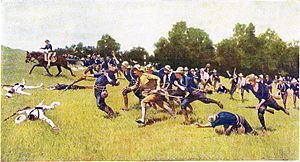 Spanish-American War Spanish-American War
- 27 Jun 1898—27 Jun 1898: The first solo circumnavigation of the globe completed at Rhode island by
Joshua Slocum in Spray (started from Boston, Mass on Apr 24, 1895)
|
| 333 | 1899 | - 4 Feb 1899—2 Jul 1902:
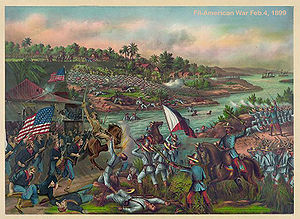 Philippine-American War Philippine-American War
- 6 Mar 1899—6 Mar 1899: Aspirin first marketed by Bayer
- 11 Oct 1899—11 Oct 1899: Start of Second Boer War
- 18 Oct 1899—7 Sep 1901:
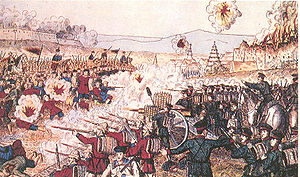 Boxer Rebellion Boxer Rebellion
|
| 334 | 1900 | - 1900—1900: School leaving age in Britain raised to 14 years
- 1900—1900: Central Line opens in London: underground is electrified
- 1900—1900: Escalator shown at Paris exhibition
- 9 Feb 1900—9 Feb 1900: Davis Cup tennis competition established
- 27 Feb 1900—27 Feb 1900: Labour Party formed
|
| 335 | 1901 | - 1901—1901: Commonwealth of Australia founded
- 1901—1901: Hubert Cecil Booth patents the vacuum cleaner
- 22 Jan 1901—22 Jan 1901: Queen Victoria dies - Edward VII king
- 2 Feb 1901—2 Feb 1901: Queen Victoria's funeral - interred beside Prince Albert in the Frogmore
Mausoleum at Windsor Great Park
- Jun 1901—Jun 1901: Denunciation of use of concentration camps by British in Boer War
- 14 Sep 1901—4 Mar 1909:
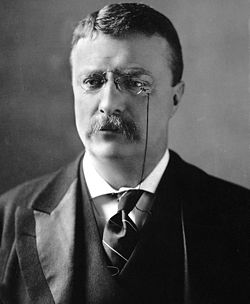 Theodore Roosevelt U.S. Presidency Theodore Roosevelt U.S. Presidency
- 2 Oct 1901—2 Oct 1901: Britain's first submarine launched
- 12 Dec 1901—12 Dec 1901: First successful radio transmission across the Atlantic, by Marconi - Morse
code from Cornwall to Newfoundland
|
| 336 | 1902 | - 1902—1902: Balfour's Education Act provides for secondary education
- 1902—1902: Cremation Act - cremation can only take place at officially recognised establishments,
and with two death certificates issued
- 1902—1902: Marie Curie discovers radioactivity
- 24 May 1902—24 May 1902: Empire Day (later Commonwealth Day) first celebrated
- 31 May 1902—31 May 1902: Treaty of Vereeniging ends Second Boer War
- 9 Aug 1902—9 Aug 1902: Coronation of Edward VII
|
| 337 | 1903 | - 1903—1903: Workers' Education Association (WEA) formed in Britain
- 1903—1903: Women's Social and Political Union formed in Britain by Emmeline Pankhurst
- 1903—1903: Henry Ford sets up his motor company
- 14 Dec 1903—14 Dec 1903: First flight of Wilbur & Orville Wright
|
| 338 | 1904 | - 1904—1904: Leeds University established
- 8 Apr 1904—8 Apr 1904: France and UK sign the Entente Cordiale
- 4 May 1904—4 May 1904: America takes over construction of the Panama Canal from the French
(completed 1914)
|
| 339 | 1905 | - 1905—1905: The title 'Prime Minister' noted in a royal warrant for the first time - placed the Prime
Minister in order of precedence in Britain immediately after the Archbishop of York
- 1905—1905: Aliens Act in Britain: Home Office controls immigration
- 1905—1905: Germany lays down the first Dreadnought battleship
- 11 Apr 1905—11 Apr 1905: Einstein publishes Special Theory of Relativity
|
| 340 | 1906 | - 1906—1906: Introduction of free school meals for poor children
- 10 Feb 1906—10 Feb 1906: Launching of HMS Dreadnought, first turbine-driven battleship
- 15 Mar 1906—15 Mar 1906: Rolls-Royce Ltd registered
- 26 May 1906—26 May 1906: Vauxhall Bridge opened in London
- 20 Sep 1906—20 Sep 1906: Launching of Cunard's RMS Mauretania on the Tyne
|
| 341 | 1907 | - 1907—1907: New Zealand becomes a Dominion
- 1907—1907: Imperial College, London, is established
- 1907—1907: First airship flies over London
- 1907—1907: Lumiere develops a process for colour photography
- Jul 1907—Jul 1907: Leo Hendrik Baekeland patents Bakelite, the first plastic invented that held its
shape after being heated
- 1 Aug 1907—1 Aug 1907: Baden-Powell leads the first Scout camp on Brownsea Island
- 9 Nov 1907—9 Nov 1907: The Cullinan Diamond presented to Edward VII on his birthday
|
| 342 | 1908 | - 1908—1908: Coal Mines Regulation Act in Britain limits men to an eight hour day
- 1908—1908: Separate courts for juveniles established in Britain
- 1908—1908: Lord Baden-Powell starts the Boy Scout movement
- 1 Jul 1908—1 Jul 1908: SOS became effective as an international signal of distress
- 12 Aug 1908—12 Aug 1908: First 'Model T' Ford made
|
| 343 | 1909 | - 1909—1909: Beveridge Report prompts creation of labour Exchanges
- 1909—1909: Peary reaches the north pole
- 1909—1909: First commercial manufacture of Bakelite - start of the plastic age
- 1 Jan 1909—1 Jan 1909: Old Age Pensions Act came into force
- 16 Jan 1909—16 Jan 1909: Ernest Shackleton's expedition finds the magnetic South Pole
- 4 Mar 1909—4 Mar 1913:
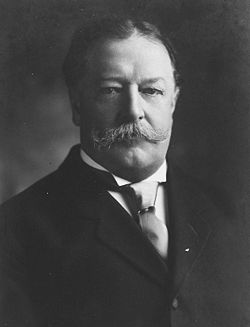 William Howard Taft U.S. Presidency William Howard Taft U.S. Presidency
- 15 Mar 1909—15 Mar 1909: Selfridges department store opens in London
- 25 Jul 1909—25 Jul 1909: Bleriot flies across the Channel (36 minutes, Calais to Dover)
|
| 344 | 1910 | - 1910—1910: Railway strike and coal strikes in Britain
- 1910—1910: Constitutional crisis in Britain
- 1910—1910: Dr Crippen caught by radio telegraphy; hanged 23 Nov at Pentonville
- 1910—1910: Madame Curie isolates radium
- 1910—1910: Halley's comet reappears
- 1910—1910: Tango becomes popular in North America and Europe
- 6 May 1910—6 May 1910: Edward VII dies - George V becomes King
|
| 345 | 1911 | - 1911—1911: Parliament Act in Britain reduces the power of the House of Lords
- 1911—1911: British MPs receive a salary
- 1911—1911: First British Official Secrets Act
- 1911—1911: Rutherford: theory of atomic structures
- 1911—1911: Strikes by seamen, dock and transport workers (1911-1912)
- 2 Apr 1911—2 Apr 1911: Census: Population - England and Wales: 36 Million; Scotland: 4.6 Million; N Ireland: 1.25 Million
- 22 Jun 1911—22 Jun 1911: Coronation of George V
- 14 Dec 1911—14 Dec 1911: National Insurance introduced in Britain
|
| 346 | 1912 | - 1912—1912: Irish Home Rule crisis grows in Britain
- 1912—1912: Britain nationalises the telephone system
- 1912—1912: Discovery of the 'Piltdown Man' - hoax, exposed in 1953
- 18 Jan 1912—18 Jan 1912: Captain Scott's last expedition - he and his team reach the south pole on Jan
18th; all die on the way back, their bodies found in November
- 14 Apr 1912—14 Apr 1912: The 'unsinkable' Titanic sinks on maiden voyage - loss of 1,513 lives
- 13 May 1912—13 May 1912: Royal Flying Corps (later the RAF) founded in Britain
|
| 347 | 1913 | - 1913—1913: Third Irish Home Rule Bill rejected by House of Lords - threat of civil war in Ireland -
formation of Ulster Volunteers to oppose Home Rule
- 1913—1913: Suffragette demonstrations in London - Mrs Pankhurst imprisoned
- 1913—1913: Trade Union Act in Britain establishes the right to use Union funds for political
purposes
- 1913—1913: Invention of stainless steel by Harry Brearley of Sheffield
- 1913—1913: Geiger invents his counter to measure radioactivity
- 4 Mar 1913—4 Mar 1921:
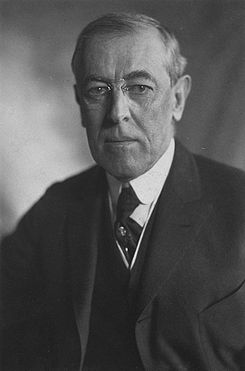 Woodrow Wilson U.S. Presidency Woodrow Wilson U.S. Presidency
- 4 Jun 1913—4 Jun 1913: Emily Davison, a suffragette, runs out in front of the king's horse, Anmer, at the
Epsom Derby and dies
|
| 348 | 1914 | - 1914—1914: Irish Home Rule Act provides for a separate Parliament in Ireland; the position of Ulster
to be decided after the War
- 1914—1914: Chaplin and De Mille make their first films
- 28 Jun 1914—28 Jun 1914: Archduke Ferdinand assassinated in Sarajevo
- 28 Jul 1914—11 Nov 1918:
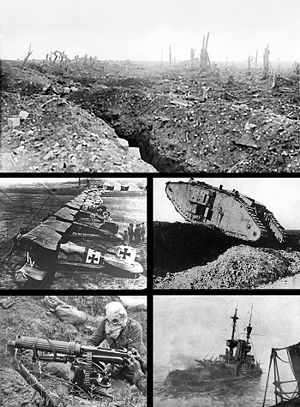 World War I World War I
- 4 Aug 1914—4 Aug 1914: Britain declares war on Germany, citing Belgian neutrality as reason
- 5 Aug 1914—5 Aug 1914: British cableship Telconia cut through all five of Germany's undersea telegraph
links to the outside world
- 15 Aug 1914—15 Aug 1914: Panama Canal opened, the Canal cement boat 'Ancon' making the first official
transit (plans for a grand opening were cancelled due to the start of WW1)
- Oct 1914—Oct 1914: Battle of Ypres - beginning of trench warfare on western front
- 27 Nov 1914—27 Nov 1914: First policewoman goes on duty in Britain
- 16 Dec 1914—16 Dec 1914: German battleships bombard Hartlepool and Scarborough
|
| 349 | 1915 | - 1915—1915: Junkers construct first fighter aeroplane
- 1915—1915: First automatic telephone exchange in Britain
- 19 Jan 1915—19 Jan 1915: First Zeppelin air raid on England, over East Anglia - four killed
- Feb 1915—Feb 1915: Submarine blockade of Britain starts
- Apr 1915—Apr 1915: Second Battle of Ypres - poison gas used for first time
- 25 Apr 1915—25 Apr 1915: Gallipoli campaign starts (declared ANZAC Day in 1916)
- 7 May 1915—7 May 1915: RMS Lusitania sunk by German submarine off coast of Ireland - 1,198 died
- 16 May 1915—16 May 1915: First meeting of a British WI (Women's Institute) took place in Llanfairpwll
(aka Llanfair PG), Anglesey
|
| 350 | 1916 | - 1916—1916: Compulsory military service introduced in Britain
- Feb 1916—Feb 1916: Battle of Verdun - appalling losses on both sides, stalemate continues
- 24 Apr 1916—24 Apr 1916: Easter Rising in Ireland - after the leaders are executed, public opinion backs
independence
- 21 May 1916—21 May 1916: First use of Daylight Saving Time in UK
- 31 May 1916—31 May 1916: Battle of Jutland - only major naval battle between the British and
German fleets
- 5 Jun 1916—5 Jun 1916: Sinking of HMS Hampshire and death of Kitchener
- 3 Aug 1916—3 Aug 1916: Sir Roger Casement hanged at Pentonville Prison for treason
- 15 Sep 1916—15 Sep 1916: First use of tanks in battle, but of limited effect (Battle of the Somme 1 July to 18 Nov: over 1 million casualties)
- 7 Dec 1916—7 Dec 1916: Lloyd-George becomes British Prime Minister of the coalition government
|
| 351 | 1917 | - 1917—1917: Battle of Cambrai - first use of massed tanks, but effect more psychological than actual
- 1917—1917: Ministry of Labour is established in Britain
- Feb 1917—Feb 1917: February revolution in Russia; Tsar Nicholas abdicates
- 16 Apr 1917—16 Apr 1917: Lenin returns to Russia after exile
- 17 Apr 1917—17 Apr 1917: USA declares war on Germany
- 26 May 1917—26 May 1917: George V changes surname from Saxe-Coburg-Gotha to Windsor (Royal
proclamation on 17 July)
- Jul 1917—Jul 1917: Battle of Passchendaele - little gained by either side (Jul-Nov)
- 7 Nov 1917—7 Nov 1917: 'October' Revolution in Russia - Bolsheviks overthrow provisional government;
Lenin becomes Chief Commissar
- 6 Dec 1917—6 Dec 1917: Halifax (Nova Scotia) Explosion, one of the world's largest artificial non-nuclear
explosions to date: a ship loaded with wartime explosives blew up after a collision,
obliterating buildings and structures within two square kilometres of the explosion
- 9 Dec 1917—9 Dec 1917: British forces capture Jerusalem
|
| 352 | 1918 | - 1918—1918: Vote for women over 30, men over 21 (except peers, lunatics and felons)
- 1918—1918: War of Independence in Ireland
- 18 Jan 1918—18 Jan 1918: Bentley Motors founded
- 8 Mar 1918—8 Mar 1918: Start of world-wide 'flu pandemic
- Jul 1918—Jul 1918: Second Battle of the Marne: last major German offensive in WW1 (Jul-Aug)
- 1 Oct 1918—1 Oct 1918: Arab forces under Lawrence of Arabia capture Damascus
- 11 Nov 1918—11 Nov 1918: Armistice signed
- Dec 1918—Dec 1918: First woman elected to House of Commons, Countess Markiewicz as a Sinn Fein
member refused to take her seat
|
| 353 | 1919 | - 1919—1919: Britain adopts a 48-hour working week
- 1919—1919: Sir Ernest Rutherford publishes account of splitting the atom
- 15 Jun 1919—15 Jun 1919: Alcock and Brown complete first nonstop flight across the Atlantic
- 28 Jun 1919—28 Jun 1919: Treaty of Versailles signed
|
| 354 | 1920 | - 1920—1920: Regular cross-channel air service starts
- 1920—1920: Marconi opens a radio broadcasting station in Britain
- 1920—1920: Thompson patents his machine gun (Tommy gun)
- Feb 1920—Feb 1920: First roadside petrol filling station in UK - opened by the Automobile Association
at Aldermaston on the Bath Road
|
| 355 | 1921 | - 1921—1921: Railway Act in Britain amalgamates companies - only four remained
- 1921—1921: Insulin discovery announced
- 1921—1921: First birth control clinic
- 4 Mar 1921—2 Aug 1923:
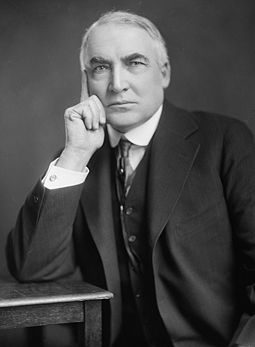 Warren G. Harding U.S. Presidency Warren G. Harding U.S. Presidency
- 19 Jun 1921—19 Jun 1921: Census: Population - England and Wales: 37.9 Million; Scotland: 4.9 Million; N Ireland: 1.25 Million
- 6 Dec 1921—6 Dec 1921: Anglo-Irish Treaty signed in London, leading to the formation of the Irish Free
State and Northern Ireland
|
| 356 | 1922 | - 1922—1922: Law of Property Act - the manorial system effectively ended
- 1 Jun 1922—1 Jun 1922: Royal Ulster Constabulary founded
- Oct 1922—Oct 1922: BBC established as a monopoly, and begins transmissions in November (2LO in
London on 14 Nov; 5IT in Birmingham and 2ZY in Manchester on 15 Nov)
|
| 357 | 1923 | - 1923—1923: Roads in Great Britain classified with A and B numbers
- 1923—1923: Hubble shows there are galaxies beyond the Milky Way
- 1923—1923: First American broadcasts heard in Britain
- 1 Jan 1923—1 Jan 1923: The majority of the railway companies in Great Britain grouped into four main
companies, the Big Four: LNER, GWR, SR, LMSR - lasted until nationalisation in 1948
- 16 Feb 1923—16 Feb 1923: Howard Carter unsealed the burial chamber of Tutankhamun
- 28 Apr 1923—28 Apr 1923: First Wembley cup final (West Ham 0, Bolton 2) - 'I'm Forever Blowing Bubbles ' popular song of the time became the West Ham anthem
- 2 Aug 1923—4 Mar 1929:
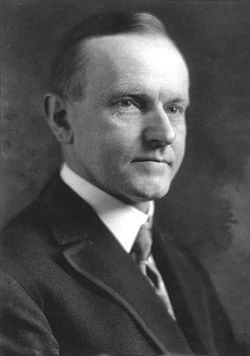 Calvin Coolidge U.S. Presidency Calvin Coolidge U.S. Presidency
- 28 Sep 1923—28 Sep 1923: First publication of Radio Times
|
| 358 | 1924 | - 4 Jan 1924—4 Jan 1924: First Labour government in Britain, headed by Ramsay MacDonald
- 5 Feb 1924—5 Feb 1924: Hourly Greenwich Time Signals from the Royal Greenwich Observatory were
first broadcast by the BBC
- 31 Mar 1924—31 Mar 1924: British Imperial Airways begins operations (formed by merger of four British
airline companies - became BOAC in 1940)
|
| 359 | 1925 | - 1925—1925: Britain returns to gold standard
- 18 Jul 1925—18 Jul 1925: Adolf Hitler publishes Mein Kampf
|
| 360 | 1926 | - 1926—1926: First public demonstration of television (TV) by John Logie Baird
- 1926—1926: Adoption of children is legalised in Britain
- 1926—1926: Kodak produces 16mm movie film
- 1926—1926: Walt Disney arrives in Hollywood
- 21 Apr 1926—21 Apr 1926: Princess Elizabeth born
- 3 May 1926—3 May 1926: General Strike begins. Lasts until May 12 (mine workers for 6 months more)
- 31 Oct 1926—31 Oct 1926: Death of Harry Houdini
|
| 361 | 1927 | - 1927—1927: Release of the first 'talkie' film (The Jazz Singer)
- 7 Jan 1927—7 Jan 1927: First transatlantic telephone call - New York City to London
- 22 Jan 1927—22 Jan 1927: First football broadcast by BBC (Arsenal v Sheffield United at Highbury)
- 1 May 1927—1 May 1927: First cooked meals on a scheduled flight introduced by Imperial Airways from
London to Paris
- 20 May 1927—20 May 1927: Lindbergh makes solo flight across the Atlantic, in 33? hours
- 31 May 1927—31 May 1927: Last Ford Model T rolls off assembly line
- 24 Jul 1927—24 Jul 1927: The Menin Gate war memorial unveiled at Ypres
|
| 362 | 1928 | - 1928—1928: Women over 21 get vote in Britain - same qualification for both sexes
- 26 Apr 1928—26 Apr 1928: Madame Tussauds opens in London
- 15 Sep 1928—15 Sep 1928: Sir Alexander Fleming accidentally discovers penicillin (results published 1929)
|
| 363 | 1929 | - 1929—1929: Abolition of Poor Law system in Britain
- 1929—1929: Minimum age for a marriage in Britain (which had been 14 for a boy and 12 for a girl)
now 16 for both sexes, with parental consent (or a licence) needed for anyone under 21
- 1929—1929: BBC begins experimental TV transmissions
- 4 Mar 1929—4 Mar 1933:
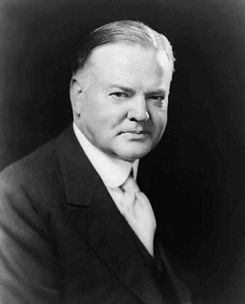 Herbert Hoover U.S. Presidency Herbert Hoover U.S. Presidency
|
| 364 | 1930 | - 1930—1930: First Nazis elected to the German Reichstag
- 1930—1930: Youth Hostel Association (YHA) founded in Britain
- 30 Jan 1930—30 Jan 1930: Hitler becomes chancellor of Germany
- 31 Jan 1930—31 Jan 1930: 3M begins marketing Scotch Tape
- 6 Mar 1930—6 Mar 1930: Clarence Birdseye first marketed frozen peas
- 5 Oct 1930—5 Oct 1930: R101 airship disaster - British abandons airship construction
|
| 365 | 1931 | - 1931—1931: Statute of Westminster: British Dominions become independent sovereign states
- 1931—1931: Collapse of the German banking system; 3,000 banks there close
- 14 Apr 1931—14 Apr 1931: Highway Code first issued
- 26 Apr 1931—26 Apr 1931: Census: Population - England and Wales; 40 Million; Scotland: 4.8 Million; N Ireland: 1.24 Million (Unfortunately, the census was destroyed by fire in WW2)
- 21 Oct 1931—21 Oct 1931: National Government formed to deal with economic crisis - Britain comes off
gold standard
|
| 366 | 1932 | - 1932—1932: Great Hunger March of unemployed to London
- 1932—1932: Moseley founds British Union of Fascists
- 1932—1932: Cockroft and Walton accelerate particles to disintegrate an atomic nucleus
- 1932—1932: Sir Thomas Beecham established the London Philharmonic Orchestra
- 21 May 1932—21 May 1932: Amelia Earhart first solo nonstop flight across Atlantic by a female pilot
- 3 Oct 1932—3 Oct 1932: Iraq gains independence from Britain
- 3 Oct 1932—3 Oct 1932: 'The Times' introduces 'Times New Roman' typeface
|
| 367 | 1933 | - 1933—1933: ICI scientists discover polythene
- 1933—1933: Only 6 pennies minted in Britain this year
- 4 Mar 1933—12 Apr 1945:
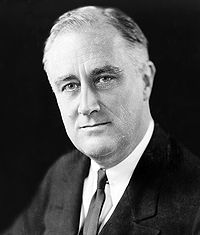 Franklin D. Roosevelt U.S. Presidency Franklin D. Roosevelt U.S. Presidency
- 12 Nov 1933—12 Nov 1933: First known photos of the 'Loch Ness Monster' taken
|
| 368 | 1934 | - 1934—1934: Hitler becomes Fuehrer of Germany
- 18 Jul 1934—18 Jul 1934: King George V opens Mersey Tunnel
- 26 Sep 1934—26 Sep 1934: RMS Queen Mary launched
- 30 Nov 1934—30 Nov 1934: First time a steam locomotive travels at 100 mph ('Flying Scotsman')
|
| 369 | 1935 | - 1935—1935: London adopts a 'Green Belt' scheme
- 1935—1935: Land speed record of 301.13 mph by Malcolm Campbell
- 28 Feb 1935—28 Feb 1935: Nylon first produced by Gerard J. Berchet of Wallace Carothers' research group
at DuPont (there is no evidence to the widely-supposed story that the name derives from
New York-London)
- 12 Mar 1935—12 Mar 1935: Hore-Belisha introduces pedestrian crossings and speed limits for built-up areas
in Britain
- 1 Jun 1935—1 Jun 1935: Voluntary driving tests introduced in UK
- 30 Jul 1935—30 Jul 1935: Penguin paperbacks launched
|
| 370 | 1936 | - 1936—1936: Jet engine first tested
- 20 Jan 1936—20 Jan 1936: George V dies
- 5 May 1936—5 May 1936: First flight of a Spitfire
- 24 Jul 1936—24 Jul 1936: 'Speaking clock' service starts in UK
- 2 Nov 1936—2 Nov 1936: British Broadcasting Corporation initiates the BBC Television Service, world's
first public TV transmission
- 30 Nov 1936—30 Nov 1936: Crystal Palace destroyed by fire
- 5 Dec 1936—5 Dec 1936: Edward VIII abdicates (announced Dec 10) - popular carol that Christmas:
'Hark the Herald Angels sing Mrs Simpson's got our King'
|
| 371 | 1937 | - 1937—1937: '999' emergency telephone call facility starts in London
- 1937—1937: Billy Butlin opens his first holiday camp
- 12 Apr 1937—12 Apr 1937: Frank Whittle ground-tests the first jet engine designed to power an aircraft
- 12 May 1937—12 May 1937: Coronation of King George VI
- 28 May 1937—28 May 1937: Neville Chamberlain becomes Prime Minister - policy of appeasement towards
Hitler
- 3 Jun 1937—3 Jun 1937: Duke of Windsor marries Wallis Simpson
- 4 Dec 1937—4 Dec 1937: 'The Dandy' first published
|
| 372 | 1938 | - 1938—1938: Principle of paid holidays established in Britain
- 1938—1938: HMS Rodney first ship to be equipped with radar
- 1938—1938: First practical ball-point pen produced by Hungarian journalist, Lajos Biro
- 12 Mar 1938—12 Mar 1938: Germany invades and annexes Austria
- 3 Jul 1938—3 Jul 1938: 'Mallard' reaches 126 mph (203 km/h); still world record for a steam locomotive
- 27 Sep 1938—27 Sep 1938: Largest ocean liner ever built, Queen Elizabeth launched on Clydebank
- 29 Sep 1938—29 Sep 1938: Chamberlain visits Hitler in Munich - promises 'peace in our time'
- 30 Oct 1938—30 Oct 1938: Orson Welles broadcasts his radio play of HG Wells 'The War of the Worlds', causing panic in the USA
|
| 373 | 1939 | - 1939—1939: Germany annexes Czechoslovakia
- 1939—1939: Start of evacuation of women and children from London
- 1939—1939: Coldest winter in Britain since 1894, though this could not be publicised at the time
- 1 Sep 1939—1 Sep 1939: Germany invades Poland
- 1 Sep 1939—2 Sep 1945:
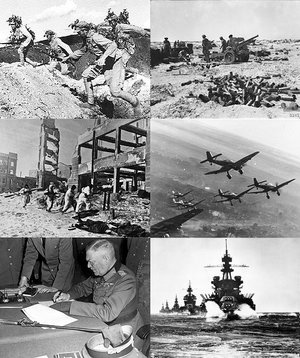 World War II World War II
- 3 Sep 1939—3 Sep 1939: Britain and France declare war on Germany
- 6 Sep 1939—6 Sep 1939: First air-raid on Britain
- 11 Sep 1939—11 Sep 1939: British Expeditionary Force (BEF) sent to France
- 14 Oct 1939—14 Oct 1939: HMS Royal Oak sunk in Scapa Flow with loss of 810 lives
- 7 Dec 1939—7 Dec 1939: 'First flight' of Canadian troops sail for Britain - 7,400 men on 5 ships
- 17 Dec 1939—17 Dec 1939: 'Admiral Graf Spee' scuttled outside Montevideo
|
| 374 | 1940 | - 1 Apr 1940—1 Apr 1940: BOAC starts operations, replacing Imperial and British Airways Ltd
- 11 May 1940—11 May 1940: National Government formed under Churchill
- 13 May 1940—13 May 1940: Germany invades France
- 27 May 1940—27 May 1940: Start of the evacuation of the British Army at Dunkirk (27 May - 4 Jun)
- 25 Jun 1940—25 Jun 1940: Fall of France to Germany
- 7 Sep 1940—7 Sep 1940: Germany launches bombing blitz on Britain, the first of 57 consecutive nights of
bombing
- 15 Sep 1940—15 Sep 1940: Battle of Britain: massive waves of German air attacks decisively repulsed by the
RAF - Hitler postpones invasion of Britain
- 14 Nov 1940—14 Nov 1940: Coventry heavily bombed and the Cathedral almost completely destroyed
|
| 375 | 1941 | - 1941—1941: Britain introduces severe rationing
- 1941—1941: First British jet aircraft flies, based on work of Whittle
- 1941—1941: Bailey invents his portable military bridge
- 1941—1941: First use of antibiotics
- 10 May 1941—10 May 1941: Rudolf Hess flies to Scotland
- 27 May 1941—27 May 1941: 'Bismark' sunk
- 22 Jun 1941—22 Jun 1941: Germany invades Russia (Operation Barbarossa)
- 1 Jul 1941—1 Jul 1941: First Canadian armoured regiments arrive in Britain
- Dec 1941—Dec 1941: Canadian forces given operation role in defending south coast of England
- Dec 1941—Dec 1941: 'Manhattan Project' of nuclear research begins in America
- 7 Dec 1941—7 Dec 1941: Japan attackes US fleet at Pearl Harbour
- 8 Dec 1941—8 Dec 1941: USA enters WWII
- 24 Dec 1941—24 Dec 1941: Hong Kong falls to the Japanese
|
| 376 | 1942 | - 1942—1942: Invention of world's first programmable computer by Alan Turing in co-operation with
Max Neumann - used to crack German codes
- 1942—1942: Gilbert Murray founds Oxfam
- 30 May 1942—30 May 1942: Over 1,000 allied bombers raid Cologne
- 4 Jun 1942—4 Jun 1942: Battle of Midway
- 19 Aug 1942—19 Aug 1942: Abortive raid on Dieppe, largely by Canadian troops
- 6 Sep 1942—6 Sep 1942: Germans defeated at Stalingrad
- 3 Oct 1942—3 Oct 1942: First successful launch of V2 rocket in Germany - first man-made object to reach
space
- 23 Oct 1942—23 Oct 1942: Battle of El Alamein - Montgomery defeats Rommel
- 2 Dec 1942—2 Dec 1942: 'Manhattan Project' - a team led by Enrico Fermi initiates the first self-sustaining
nuclear chain reaction
|
| 377 | 1943 | - 1943—1943: Round-the-clock bombing of Germany begins
- 16 May 1943—16 May 1943: 'Dam Buster' raids on Ruhr dams by RAF
- 24 Jul 1943—24 Jul 1943: Allies invade Italy - Benito Mussolini resigns as Italian Dictator, 24 July
|
| 378 | 1944 | - 6 Apr 1944—6 Apr 1944: PAYE income tax begins
- 4 Jun 1944—4 Jun 1944: Allies enter Rome
- 6 Jun 1944—6 Jun 1944: D-Day invasion of Normandy
- 12 Jun 1944—12 Jun 1944: First V1 flying bombs hit London
- 8 Sep 1944—8 Sep 1944: First V2 rocket bombs hit London
- 11 Sep 1944—11 Sep 1944: Allies enter Germany
- 16 Dec 1944—16 Dec 1944: Battle of the Bulge: German counter-offensive
|
| 379 | 1945 | - 4 Feb 1945—4 Feb 1945: Yalta Conference between Churchill, Roosevelt and Stalin
- 29 Mar 1945—29 Mar 1945: Last V1 flying bomb attack
- 12 Apr 1945—20 Jan 1953:
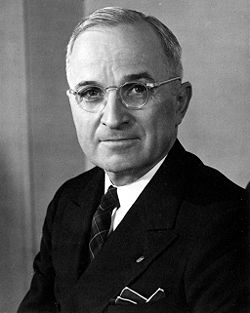 Harry S. Truman U.S. Presidency Harry S. Truman U.S. Presidency
- 25 Apr 1945—25 Apr 1945: Berlin surrounded by Russian troops
- 30 Apr 1945—30 Apr 1945: Hitler commits suicide
- 8 May 1945—8 May 1945: VE Day (Victory in Europe)
- 9 May 1945—9 May 1945: Channel Islands liberated
- 26 Jun 1945—26 Jun 1945: UN Charter signed in San Francisco
- 16 Jul 1945—16 Jul 1945: First ever atomic bomb exploded in a test in New Mexico (although there were
other forms of atomic device before that, such as the Pile at Stagg Field, first critical on
2nd Dec 1942)
- 26 Jul 1945—26 Jul 1945: Labour win UK General Election - Churchill out of office
- 29 Jul 1945—29 Jul 1945: BBC Light Programme starts
- 6 Aug 1945—6 Aug 1945: Atomic bomb dropped on Hiroshima
- 9 Aug 1945—9 Aug 1945: Atomic bomb dropped on Nagasaki
- 15 Aug 1945—15 Aug 1945: VJ Day (Victory in Japan)
- 2 Sep 1945—2 Sep 1945: Japanese surrender signed aboard USS Missouri
- 24 Oct 1945—24 Oct 1945: United Nations Organisation comes into existence
- 4 Nov 1945—4 Nov 1945: UNESCO founded
|
| 380 | 1946 | - 1946—1946: Transition to National Health Service starts in Britain (came into being 5th July 1948)
- 1946—1946: Alistair Cooke starts his regular 'Letter from America' on BBC radio - until 2004
- 1 Jan 1946—1 Jan 1946: First civillian flight from Heathrow Airport
- 1 Mar 1946—1 Mar 1946: Bank of England nationalised
|
| 381 | 1947 | - 1947—1947: Most severe winter in Britain for 53 years at start of the year - heavy snow and much
flooding later
- 1947—1947: First British nuclear reactor developed
- 1 Jan 1947—1 Jan 1947: Coal Mines nationalised
- 23 Feb 1947—23 Feb 1947: International Organization for Standardization (ISO) founded
- 1 Mar 1947—1 Mar 1947: International Monetary Fund begins financial operations
- 1 Apr 1947—1 Apr 1947: School leaving age raised to 15 in Britain
- 26 Oct 1947—26 Oct 1947: British military occupation ends in Iraq
- 20 Nov 1947—20 Nov 1947: Marriage of Princess Elizabeth (later Elizabeth II) and Philip Mountbatten in
Westminster Abbey
|
| 382 | 1948 | - 1948—1948: British Citizenship Act : all Commonwealth citizens qualify for British passports
- 1948—1948: Transistor radio invented
- 1948—1948: Long-playing record (LP) invented by Goldmark
- 1 Jan 1948—1 Jan 1948: British Railways nationalised
- 5 Jul 1948—5 Jul 1948: National Health Service (NHS) begins in Britain
- 29 Jul 1948—29 Jul 1948: London Olympics begin
|
| 383 | 1949 | - 1949—1949: Maiden flight of the Bristol Brabazon (broken up in 1953 for scrap)
- 1949—1949: De Haviland produces the Comet - first jet airliner
- 15 Mar 1949—15 Mar 1949: Clothes rationing ends in Britain
- 4 Apr 1949—4 Apr 1949: Twelve nations sign The North Atlantic Treaty creating NATO
|
| 384 | 1950 | - 19 May 1950—19 May 1950: Points rationing ends in Britain
- 26 May 1950—26 May 1950: Petrol rationing ends in Britain
- 25 Jun 1950—27 Jul 1953:
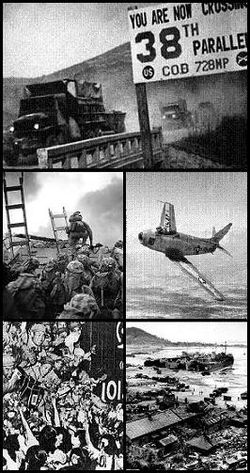 Korean War Korean War
- 11 Jul 1950—11 Jul 1950: 'Andy Pandy' first seen on BBC TV
- 9 Sep 1950—9 Sep 1950: Soap rationing ends in Britain
- 28 Dec 1950—28 Dec 1950: The Peak District becomes the Britain's first National Park
|
| 385 | 1951 | - 3 May 1951—3 May 1951: Festival of Britain and Royal Festival Hall open on South Bank, London
- 28 May 1951—28 May 1951: First Goon Show broadcast
- 20 Dec 1951—20 Dec 1951: Electricity first produced by nuclear power, from Experimental Breeder Reactor
|
| 386 | 1952 | - 1952—1952: Contraceptive pill invented
- 1952—1952: Britain explodes her first atomic bomb, in Australia
- 1952—1952: Radioactive carbon used for dating prehistoric objects
- 1952—1952: Bonn Convention: Britain, France and USA end their occupation of West Germany
- 6 Feb 1952—6 Feb 1952: King George VI dies
- 21 Feb 1952—21 Feb 1952: Identity Cards abolished in Britain
- 2 May 1952—2 May 1952: First commercial jet airliner service launched, by BOACComet between London
and Johannesburg
- 5 Jul 1952—5 Jul 1952: Last tram runs in London (Woolwich to New Cross)
- 16 Aug 1952—16 Aug 1952: Lynmouth (North Devon) flood disaster
- 6 Sep 1952—6 Sep 1952: DH110 crashes at Farnborough Air Show, 26 killed
- 3 Oct 1952—3 Oct 1952: End of tea rationing in Britain
- 1 Nov 1952—1 Nov 1952: The first H-bomb ever ('Mike') was exploded by the USA - the mushroom cloud
was 8 miles across and 27 miles high. The canopy was 100 miles wide. Radioactive mud fell
out of the sky followed by heavy rain. 80 million tons of earth was vaporised.
- 25 Nov 1952—25 Nov 1952: Agatha Christie's 'The Mousetrap' opens in London
- 4 Dec 1952—4 Dec 1952: Great smog hits London
|
| 387 | 1953 | - 20 Jan 1953—20 Jan 1961:
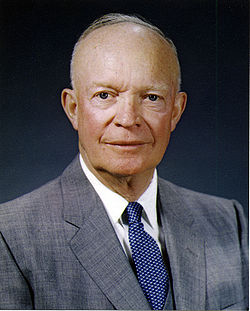 Dwight D. Eisenhower U.S. Presidency Dwight D. Eisenhower U.S. Presidency
- 31 Jan 1953—31 Jan 1953: Said to be the biggest civil catastrophe in Britain in the 20th century -
severe storm and high tides caused the loss of hundreds of lives - - effects travelled from the
west coast of Scotland round to the south-east coast of England [The Netherlands were even
worse affected with over a thousand deaths]
- 5 Feb 1953—5 Feb 1953: Sweet rationing ends in Britain
- 5 Mar 1953—5 Mar 1953: Death of Stalin
- 26 Mar 1953—26 Mar 1953: Jonas Salk announces his polio vaccine
- 24 Apr 1953—24 Apr 1953: Winston Churchill knighted
- 25 Apr 1953—25 Apr 1953: Francis Crick and James D Watson publish the double helix structure of DNA
- 2 Jun 1953—2 Jun 1953: Coronation of Elizabeth II
- 26 Sep 1953—26 Sep 1953: Sugar rationing ends in Britain (after nearly 14 years)
|
| 388 | 1954 | - 1954—1954: First comprehensive school opens in London
- 1954—1954: Routemaster bus starts operating in London
- 1954—1954: First transistor radios sold
- 6 May 1954—6 May 1954: First sub 4 minute mile (Roger Bannister, 3 mins 59.4 secs)
- 3 Jul 1954—3 Jul 1954: Food rationing officially ends in Britain
- 5 Jul 1954—5 Jul 1954: BBC broadcasts its first television news bulletin
- 30 Sep 1954—30 Sep 1954: First atomic powered sumbmarine USS Nautilus commissioned
|
| 389 | 1955 | - 1955—1955: 'Mole' self-grip wrench patented by Thomas Coughtrie of Mole & Sons
- 27 Jul 1955—27 Jul 1955: Jul 27: Allied occupation of Austria (after WW2) ends
- 22 Sep 1955—22 Sep 1955: Commercial TV starts in Britain
|
| 390 | 1956 | - 1956—1956: Britain constructs world's first large-scale nuclear power station in Cumberland
- 1 Mar 1956—1 Mar 1956: Radiotelephony spelling alphabet introduced (Alpha, Bravo, etc)
- 17 Apr 1956—17 Apr 1956: Premium Bonds first launched - first prizes drawn on 1 Jun 1957
- 3 Jun 1956—3 Jun 1956: 3rd class travel abolished on British Railways (renamed 'Third Class' as 'Second
Class', which had been abolished in 1875 leaving just First and Third Class)
- 31 Oct 1956—31 Oct 1956: Britain and France invade Suez
|
| 391 | 1957 | - 1957—1957: Britain introduces parking meters
- 1957—1957: Helvetica typeface developed (in Switzerland)
- 11 Jan 1957—11 Jan 1957: Harold Macmillan becomes Prime Minister
- 14 May 1957—14 May 1957: Post-Suez petrol rationing ends
- 15 May 1957—15 May 1957: Britain explodes her first hydrogen bomb, at Christmas Island
- 25 May 1957—25 May 1957: Treaty of Rome to create European Economic Community (EEC) of six
countries: France, West Germany, Italy, Belgium, Holland and Luxembourg - became
operational Jan 1958
- 4 Dec 1957—4 Dec 1957: Lewisham rail disaster - 90 killed as two trains collide in thick fog and a viaduct
collapses on top of them
- 25 Dec 1957—25 Dec 1957: Queen's first Christmas TV broadcast
|
| 392 | 1958 | - 1958—1958: Easter: First anti-nuclear protest march to Aldermaston (emergence of CND)
- 1958—1958: Computers begin to be used in research, industry and commerce
- 1958—1958: USA begins to produce Inter-Continental Ballistic Missiles (ICBMs)
- 13 May 1958—13 May 1958: Velcro trade mark registered
- 26 Jul 1958—26 Jul 1958: Prince Charles' Investiture as 'Prince of Wales'
- 5 Dec 1958—5 Dec 1958: Inauguration of Subscriber Trunk Dialling (STD) in Britain (completed in 1979)
- 5 Dec 1958—5 Dec 1958: Preston by-pass opens - UK's first stretch of motorway
|
| 393 | 1959 | - 3 Feb 1959—3 Feb 1959: 'The Day The Music Died' - plane crash kills Buddy Holly, Ritchie Valens, and
The Big Bopper
- 17 Feb 1959—17 Feb 1959: Vanguard 2 satellite launched - first to measure cloud-cover distribution
- 24 May 1959—24 May 1959: Empire Day becomes Commonwealth Day
- Aug 1959—Aug 1959: BMC Mini car launched
- 26 Sep 1959—30 Apr 1975:
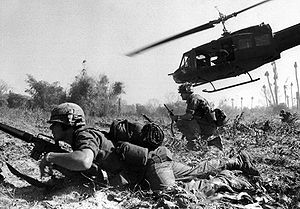 Vietnam War Vietnam War
- 3 Oct 1959—3 Oct 1959: Postcodes introduced in Britain
- 1 Nov 1959—1 Nov 1959: First section of M1 motorway opened
|
| 394 | 1960 | - 17 Mar 1960—17 Mar 1960: New ?1 notes issued by Bank of England
- 18 Mar 1960—18 Mar 1960: Last steam locomotive of British Railways named
- 21 Jul 1960—21 Jul 1960: Francis Chichester arrives in New York aboard Gypsy Moth II (took 40 days),
winning the first single-handed transatlantic yacht race which he co-founded
- 12 Aug 1960—12 Aug 1960: Echo I, the first (passive) communications satellite, launched
- 12 Sep 1960—12 Sep 1960: MoT tests on motor vehicles introduced
- 1 Oct 1960—1 Oct 1960: HMS 'Dreadnought' nuclear submarine launched
- 2 Nov 1960—2 Nov 1960: Penguin Books found not guilty of obscenity in the 'Lady Chatterley's Lover' case
|
| 395 | 1961 | - 1 Jan 1961—1 Jan 1961: Farthing ceases to be legal tender in UK
- 20 Jan 1961—22 Nov 1963:
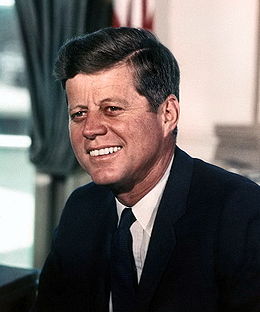 John F. Kennedy U.S. Presidency John F. Kennedy U.S. Presidency
- 13 Mar 1961—13 Mar 1961: Black & White ?5 notes cease to be legal tender
- 14 Mar 1961—14 Mar 1961: New English Bible (New Testament) published
- 1 May 1961—1 May 1961: Betting shops legal in Britain
|
| 396 | 1962 | - 1962—1962: Britain passes Commonwealth Immigrants Act to control immigration
- 1962—1962: Thalidomide withdrawn after it causes deformities in babies
- 1962—1962: Britain and France agree to construct 'Concorde'
- 25 May 1962—25 May 1962: Consecration of new Coventry Cathedral (old destroyed in WW2 blitz)
- 15 Jun 1962—15 Jun 1962: First nuclear generated electricity to supplied National Grid (from Berkeley Glos)
- Jul 1962—Jul 1962: First passenger-carrying hovercraft enters service, along the North Wales Coast from Moreton to Rhyl
- 10 Jul 1962—10 Jul 1962: First TV transmission between US and Europe (Telstar) - first live broadcast on 23 Jul
- 24 Oct 1962—24 Oct 1962: Cuba missile crisis - brink of nuclear war
|
| 397 | 1963 | - 1963—1963: France vetoes Britain's entry into EEC
- Jan 1963—Jan 1963: Cold weather forces cancellation of most football matches (only 4 English First Division matches in the month) - the first 'pools panel' created
- 27 Mar 1963—27 Mar 1963: Beeching Report on British Railways (the 'Beeching Axe')
- 1 Aug 1963—1 Aug 1963: Minimum prison age raised to 17
- 8 Aug 1963—8 Aug 1963: 'Great Train Robbery' on Glasgow to London mail train
- 17 Sep 1963—17 Sep 1963: Fylingdales (Yorks) early warning system operational
- 18 Nov 1963—18 Nov 1963: Dartford Tunnel opens
- 22 Nov 1963—20 Jan 1969:
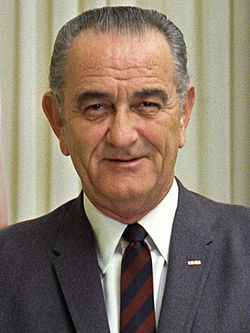 Lyndon B. Johnson U.S. Presidency Lyndon B. Johnson U.S. Presidency
- 23 Nov 1963—23 Nov 1963: First episode of 'Dr Who' on BBC TV
|
| 398 | 1964 | - 1 Jan 1964—1 Jan 1964: First 'Top of the Pops' on BBC TV
- 9 Apr 1964—9 Apr 1964: First Greater London Council (GLC) election
- 21 Apr 1964—21 Apr 1964: BBC2 TV launched
- 22 Aug 1964—22 Aug 1964: 'Match of the Day' starts on BBC2
- 4 Sep 1964—4 Sep 1964: Forth road bridge opens
|
| 399 | 1965 | - 1965—1965: Britain enacts first Race Relations Act
- 7 Feb 1965—7 Feb 1965: First US raids against North Vietnam
- 7 Apr 1965—7 Apr 1965: Winston Churchill dies
- 1 Aug 1965—1 Aug 1965: TV cigarette advertising banned in Britain
- 8 Oct 1965—8 Oct 1965: Post Office Tower operational in London
- 28 Oct 1965—28 Oct 1965: Death penalty for murder suspended in Britain for five-year trial period, then
abolished 18 Dec 1969
- 22 Dec 1965—22 Dec 1965: 70mph speed limit introduced on British roads
|
| 400 | 1966 | - 14 Feb 1966—14 Feb 1966: Australia converts from ? to $
- 3 May 1966—3 May 1966: 'The Times' begins to print news on its front page in place of classified
Advertisements
- 30 Jul 1966—30 Jul 1966: World Cup won by England at Wembley (4-2 in extra time v West Germany)
- 8 Sep 1966—8 Sep 1966: First Severn road bridge opens
- 21 Oct 1966—21 Oct 1966: Aberfan disaster - slag heap slip kills 144, incl. 116 children
- 1 Dec 1966—1 Dec 1966: First Christmas stamps issued in Britain
|
| 401 | 1967 | - 4 Jan 1967—4 Jan 1967: Donald Campbell dies attempting to break his world water speed record on
Conniston Water - his body and Bluebird recovered in 2002
- 18 Mar 1967—18 Mar 1967: 'Torrey Canyon' oil tanker runs aground off Lands End first major oil spill
- 28 May 1967—28 May 1967: Francis Chichester arrives in Plymouth after solo circumnavigation in Gipsy Moth IV (he was knighted 7th July at Greenwich by the queen using the sword with which Elizabeth I had knighted Sir Francis Drake four centuries earlier
- 27 Jun 1967—27 Jun 1967: First withdrawal from a cash dispenser (ATM) in Britain - at Enfield branch of Barclays
- 1 Jul 1967—1 Jul 1967: First colour TV in Britain
- 14 Aug 1967—14 Aug 1967: Offshore pirate radio stations declared illegal by the UK
- 20 Sep 1967—20 Sep 1967: 'QE2' launched on Clydebank
- 27 Sep 1967—27 Sep 1967: 'Queen Mary' arrives Southampton at end of her last transatlantic voyage
- 30 Sep 1967—30 Sep 1967: BBC Radios 1 2 3 & 4 open first record played on Radio 1 was the controversial 'Flowers in the Rain' by 'The Move'
- 5 Oct 1967—5 Oct 1967: Introduction of majority verdicts in English courts
|
| 402 | 1968 | - 18 Feb 1968—18 Feb 1968: British Standard Time introduced - Summer Time became permanent but arguments prevailed and Britain reverted to GMT in October 1971
- 18 Apr 1968—18 Apr 1968: London Bridge sold (and eventually moved to Arizona) - modern London Bridge, built around it as it was demolished, was opened in Mar 1973
- 20 Apr 1968—20 Apr 1968: Enoch Powell 'Rivers of Blood' speech on immigration
- 23 Apr 1968—23 Apr 1968: Issue of 5p and 10p decimal coins in Britain
- 29 May 1968—29 May 1968: Manchester United first English club to win the European Cup
- 11 Aug 1968—11 Aug 1968: Last steam passenger train service ran in Britain (Carlisle- Liverpool)
- 16 Sep 1968—16 Sep 1968: Two-tier postal rate starts in Britain
- 5 Oct 1968—5 Oct 1968: Beginning of disturbances in N Ireland
|
| 403 | 1969 | - 20 Jan 1969—9 Aug 1974:
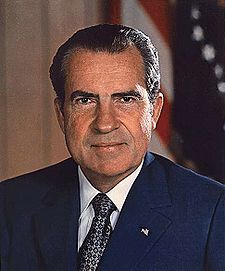 Richard Nixon U.S. Presidency Richard Nixon U.S. Presidency
- 2 Mar 1969—2 Mar 1969: Maiden flight of 'Concorde', at Toulouse
- 7 Mar 1969—7 Mar 1969: Victoria Line tube opens in London
- 17 Apr 1969—17 Apr 1969: Voting age lowered from 21 to 18
- 2 May 1969—2 May 1969: Maiden voyage of liner Queen Elizabeth 2 (QE2)
- 31 Jul 1969—31 Jul 1969: Halfpenny ceases to be legal tender in Britain
- 14 Aug 1969—14 Aug 1969: Civil disturbances in Ulster - Britain sends troops to support civil authorities
- 7 Sep 1969—7 Sep 1969: First episode of 'Monty Python's Flying Circus' recorded
- 14 Oct 1969—14 Oct 1969: 50p coin introduced in Britain (reduced in size 1998)
|
| 404 | 1970 | - 1970—1970: Boeing 747 (Jumbo jet) goes into service
- 17 Jun 1970—17 Jun 1970: Decimal postage stamps first issued for sale in Britain
- 19 Jun 1970—19 Jun 1970: Edward Heath becomes Prime Minister
- 30 Jul 1970—30 Jul 1970: Damages awarded to Thalidomide victims
- 19 Sep 1970—19 Sep 1970: First Glastonbury Festival held
- 20 Nov 1970—20 Nov 1970: Ten shilling note (50p after decimalisation) goes out of circulation in Britain
|
| 405 | 1971 | - 1971—1971: Banking and Financial Dealings Act - replaced the Bank Holidays Act of 1871
- 1971—1971: Sunday becomes the seventh day in the week as UK adopts decision of the International
Standardisation Organisation (ISO) to call Monday the first day
- 1971—1971: 'Greenpeace' founded
- 1971—1971: Rolls-Royce declared bankrupt
- 3 Jan 1971—3 Jan 1971: Open University starts
- 15 Feb 1971—15 Feb 1971: Decimalisation of coinage in UK and Republic of Ireland
- 9 Aug 1971—9 Aug 1971: Internment without trial introduced in N Ireland
- 28 Oct 1971—28 Oct 1971: Parliament votes to join Common Market (joined 1973)
- 28 Oct 1971—28 Oct 1971: UK launches its first (and only) satellite, Prospero
|
| 406 | 1972 | - 1972—1972: Britain imposes direct rule in Northern Ireland
- 1972—1972: Strict anti-hijack measures introduced internationally, especially at airports
- 1972—1972: Dutch Elm disease devastates trees across UK
- 1972—1972: Domestic video cassette recorders introduced
- 30 Jan 1972—30 Jan 1972: 'Bloody Sunday' in Derry, Northern Ireland
- 28 May 1972—28 May 1972: Duke of Windsor (ex-King Edward VIII) dies in Paris
|
| 407 | 1973 | - 1 Jan 1973—1 Jan 1973: Britain enters EEC Common Market (with Ireland and Denmark)
- 17 Mar 1973—17 Mar 1973: Modern London Bridge opened by the Queen
- 1 Apr 1973—1 Apr 1973: VAT introduced in Britain
- 26 Sep 1973—26 Sep 1973: Concorde makes its first non-stop crossing of the Atlantic in record-breaking
time
- 14 Oct 1973—14 Oct 1973: Marriage of Princess Anne and Captain Mark Phillips in Westminster Abbey
- 31 Dec 1973—31 Dec 1973: Miners strike and oil crisis precipitate 'three-day week' (till 9 Mar 1974) to
conserve power
|
| 408 | 1974 | - 1974—1974: New counties formed in Britain after re-organisation of some county boundaries
- 1 Jun 1974—1 Jun 1974: Flixborough disaster: explosion at chemical plant kills 28 people
- 9 Aug 1974—20 Jan 1977:
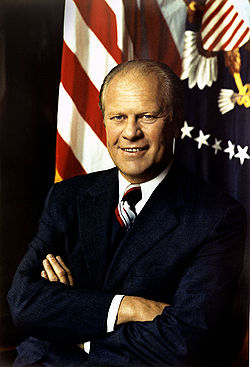 Gerald Ford U.S. Presidency Gerald Ford U.S. Presidency
- 7 Nov 1974—7 Nov 1974: Lord Lucan disappears
- 21 Nov 1974—21 Nov 1974: Birmingham pub bombings by the IRA
|
| 409 | 1975 | - 1975—1975: Unemployment in Britain rises above 1M for first time since before WW2
- 11 Feb 1975—11 Feb 1975: Margaret Thatcher becomes leader of Conservative party (in opposition)
- 28 Feb 1975—28 Feb 1975: Moorgate tube crash in London - over 43 deaths, greatest loss of life on the
Underground in peacetime. The cause of the incident was never conclusively determined
- 4 Mar 1975—4 Mar 1975: Charlie Chaplin knighted
- 5 Jun 1975—5 Jun 1975: UK votes in a referendum to stay in the European Community
- 29 Oct 1975—29 Oct 1975: 'Yorkshire Ripper' commits his first murder
- 3 Nov 1975—3 Nov 1975: First North Sea oil comes ashore
- 29 Nov 1975—29 Nov 1975: The name 'Micro-soft' coined by Bill Gates (Microsoft' became a Trademark the
following year)
- 27 Dec 1975—27 Dec 1975: Equal Pay Act and Sex Discrimination Act come into force
|
| 410 | 1976 | - 1976—1976: 'Cod War' between Britain and Iceland
- 1976—1976: Deaths exceeded live births in E&W for first time since records began in 1837
- 1976—1976: James Callaghan becomes Prime Minister
- 1976—1976: National Theatre opens in London
- 21 Jan 1976—21 Jan 1976: Concorde enters supersonic passenger service
- 1 Apr 1976—1 Apr 1976: Apple Computer formed by Steve Jobs and Steve Wozniak
- 6 Aug 1976—6 Aug 1976: Drought Act 1976 comes into force ? the long, hot summer
|
| 411 | 1977 | - 20 Jan 1977—20 Jan 1981:
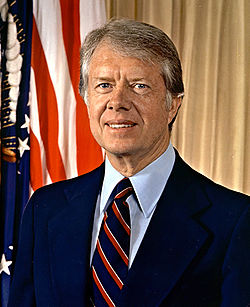 Jimmy Carter U.S. Presidency Jimmy Carter U.S. Presidency
- 2 Mar 1977—2 Mar 1977: 'Red Rum' wins a third Grand National
- 25 May 1977—25 May 1977: George Lucas' film Star Wars' released
- 5 Jun 1977—5 Jun 1977: Apple II, the first practical personal computer, goes on sale
- 7 Jun 1977—7 Jun 1977: Queen's Silver Jubilee celebrations in London
- 22 Nov 1977—22 Nov 1977: Regular supersonic Concorde service between London and NY inaugurated
|
| 412 | 1978 | - 8 Apr 1978—8 Apr 1978: Regular broadcast of proceedings in Parliament starts
- 1 May 1978—1 May 1978: First May Day holiday in Britain
- 25 Jul 1978—25 Jul 1978: World's first 'test tube' baby, Louise Browne born in Oldham
- 30 Nov 1978—30 Nov 1978: Publication of The Times suspended - industrial relations problems (until 13
Nov 1979)
|
| 413 | 1979 | - 1 Mar 1979—1 Mar 1979: 32.5% of Scots vote in favor of devolution (40% needed) - Welsh vote overwhelmingly against
- 30 Mar 1979—30 Mar 1979: Airey Neave killed by a car bomb at Westminster
- 31 Mar 1979—31 Mar 1979: Withdrawal of the Royal Navy from Malta
- 4 May 1979—4 May 1979: Margaret Thatcher becomes first woman UK Prime Minister
- 1 Jul 1979—1 Jul 1979: Sony introduces the Walkman
- 27 Aug 1979—27 Aug 1979: Lord Mountbatten and 3 others killed in bomb blast off coast of Sligo, Ireland
- 18 Sep 1979—18 Sep 1979: ILEA votes to abolish corporal punishment in its schools
|
| 414 | 1980 | - 5 May 1980—5 May 1980: SAS storm Iranian Embassy in London to free hostages
- 8 Dec 1980—8 Dec 1980: John Lennon assassinated in New York
|
| 415 | 1981 | - 20 Jan 1981—20 Jan 1989:
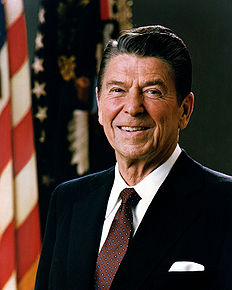 Ronald Reagan U.S. Presidency Ronald Reagan U.S. Presidency
- 25 Jan 1981—25 Jan 1981: Launch of SDP by 'Gang of Four' in Britain
- 29 Mar 1981—29 Mar 1981: First London marathon run
- 11 Apr 1981—11 Apr 1981: Brixton riots in South London - 30 other British cities also experience riots
- 25 Apr 1981—25 Apr 1981: Worst April blizzards this century in Britain
- 27 Apr 1981—27 Apr 1981: First use of computer mouse (by Xerox PARC system)
- 29 Jul 1981—29 Jul 1981: Wedding of Prince Charles and Lady Diana Spencer (divorced 28 Aug 1996)
- 12 Aug 1981—12 Aug 1981: IBM launches the first PC
- 12 Aug 1981—12 Aug 1981: IBM launches its PC ? starts the general use of personal computers
|
| 416 | 1982 | - 26 Jan 1982—26 Jan 1982: Unemployment reached 3 million in Britain (1 in 8 of working population)
- 5 Feb 1982—5 Feb 1982: Laker Airways collapses
- 19 Feb 1982—19 Feb 1982: DeLorean Car factory in Belfast goes into receivership
- 18 Mar 1982—18 Mar 1982: Argentinians raised flag in South Georgia
- 2 Apr 1982—2 Apr 1982: Argentina invades Falkland (Malvinas) Islands
- 5 Apr 1982—5 Apr 1982: Royal Navy fleet sails from Portsmouth for Falklands
- 2 May 1982—2 May 1982: British nuclear submarine HMS Conqueror sinks Argentine cruiser General
Belgrano
- 28 May 1982—28 May 1982: First land battle in Falklands (Goose Green)
- 14 Jun 1982—14 Jun 1982: Ceasefire in Falklands
- 21 Jun 1982—21 Jun 1982: Prince William is born
- 20 Jul 1982—20 Jul 1982: IRA bombings in London (Hyde Park and Regents Park)
- 19 Sep 1982—19 Sep 1982: Smiley emoticon :-) said to have been used for the first time
- 11 Oct 1982—11 Oct 1982: Mary Rose' raised in the Solent (sank in 1545)
- 31 Oct 1982—31 Oct 1982: Thames Barrier raised for first time (some say first public demonstration Nov 7)
- 2 Nov 1982—2 Nov 1982: Channel 4 TV station launched - first programme 'Countdown'
- 4 Nov 1982—4 Nov 1982: Lorries up to 38 tonnes allowed on Britain's roads
- 12 Dec 1982—12 Dec 1982: Women's peace protest at Greenham Common (Cruise missiles arrived 14 Nov
1983)
|
| 417 | 1983 | - 1983—1983: First female Lord Mayor of London elected (Dame Mary Donaldson)
- 17 Jan 1983—17 Jan 1983: Start of breakfast TV in Britain
- 31 Jan 1983—31 Jan 1983: Seat belt law comes into force
- 21 Apr 1983—21 Apr 1983: ?1 coin into circulation in Britain
- 7 Oct 1983—7 Oct 1983: Plans to abolish GLC announced
- 26 Nov 1983—26 Nov 1983: Brinks Mat robbery: 6,800 gold bars worth nearly ?26 million are stolen from a
vault at Heathrow Airport
|



